
The Art of Manliness (The Art of Manliness)
Explore every episode of The Art of Manliness
| Pub. Date | Title | Duration | |
|---|---|---|---|
| 12 Oct 2022 | What People Get Wrong About Walden | 00:53:06 | |
The two years, two months, and two days Henry David Thoreau spent at Walden Pond represent one of the most well-known experiences in American literary and philosophical history. Thoreau's time at Walden has become something of a legend, one that is alternately lionized and criticized. Yet though many people know of Thoreau's experience at Walden, and the book he wrote about it, far fewer really understand its whys, whats, and hows. My guest, who's dedicated his career to studying Thoreau, will unpack the oft-missed nuances and common misconceptions about Walden. His name is Jeffrey S. Cramer, and he's the Curator of Collections at The Walden Woods Project, as well as the author and editor of numerous books about Thoreau, including Walden: A Fully Annotated Edition. Today on the show, Jeffrey explains the reason Thoreau went to Walden, which wasn't originally to write about that experience, and which ended up evolving over time. We discuss what Walden Pond was like, the dimensions and furnishings of the house Thoreau built on its shores, and how he spent his days there. Jeffrey explains why Thoreau left Walden, how he was less attached to the experience than we commonly assume, and how the significance of the experience came less from living it and more from writing about it. We then discuss how Walden the book became a classic despite an initially slow start, before turning to what Jeffrey thinks of the common criticisms of it, and the popular impulse to tear Thoreau down. We end our conversation with what we moderns can learn from Thoreau's experiment with living deliberately. Resources Related to the Episode
Connect With Jeffrey S. Cramer | |||
| 04 Aug 2021 | How to Fight Internet-Induced Numbness | 00:40:37 | |
The ironic thing about our digital devices, is that they promise constant stimulation . . . and yet we find they end up making us feel numb. Numb in terms of struggling to be present. Numb in feeling overloaded with information and choices. Numb in feeling like we often view even our own experiences from a third-party perspective.
My guest today, Dr. Charles Chaffin, has written a book called Numb: How the Information Age Dulls Our Senses and How We Can Get Them Back, which explores the various ways internet-induced numbness manifests itself, from FOMO to choice overload on dating apps. On the show today we focus in particular on how the news media and social media can negatively alter the way we experience life and what to do about it. We first discuss how recovering our sense of engagement with life begins with thinking about the fact that our attention is a finite resource, and being intentional about how we direct that resource. We then discuss how to deal with what Charles calls the "attention panhandlers" who vie for our engagement online. Charles talks about the phenomenon of compassion fatigue, where there are so many worthy causes you could take up, that you end up doing nothing at all. We then discuss how Instagram can change the way you experience life in an age where we can all feel like content creators. We end our conversation with how to wrest back control of your attention, and use it towards action rather than distraction.
After the show is over, check out the show notes at aom.is/numb | |||
| 30 Oct 2024 | Are You a Thrill Seeker or a Chill Seeker? | 00:32:25 | |
This episode starts off a little differently than others — with a short quiz, something called the Brief Sensation-Seeking Scale, which will tell you whether you're what psychologists call a high sensation-seeker or a low sensation-seeker. Read the following eight statements, and then pick a number from 1 to 5 that corresponds to your level of agreement, where 1 is "Not at all like me," 2 is "Not like me," 3 is "Unsure or both like and not like me," 4 is "Like me," and 5 is "Very much like me."
Now add up all the numbers together. If you scored between 8 and 16, you are a low sensation-seeker. If you scored between 16 and 28, you're about average for sensation-seeking. If you scored over 28, you're a high sensation-seeker. Today on the show, I unpack what these categories of personality mean with Dr. Kenneth Carter, a clinical psychologist, a professor, and the author of Buzz!: Inside the Minds of Thrill-Seekers, Daredevils, and Adrenaline Junkies. Ken explains how sensation-seeking exists on a spectrum between chill seekers, who like safety and calm routine, and thrill seekers, who enjoy chaos, risk, and novelty. He shares how there are actually four components to high sensation-seeking, and which two tend to get people in trouble. And we talk about whether being high or low sensation-seeking is a matter of nature or nurture, how high sensation-seekers fare in romantic relationships and what they should consider in choosing a career, and what the world's chill seekers can learn from its thrill seekers. Resources Related to the PodcastConnect with Ken Carter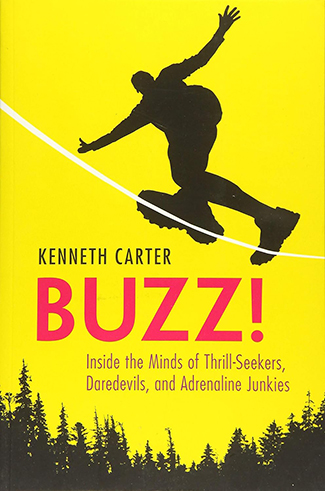
| |||
| 15 Jul 2020 | #627: How to Deal With Jerks, Bullies, Tyrants, and Trolls | 00:38:50 | |
There are some people in life who are more than unpleasant, more than annoying. They're real, genuine a**holes. My guest today has written the preeminent field guides to identifying, dealing with, and avoiding all of life's jerks, bullies, tyrants, and trolls: The No Asshole Rule and The Asshole Survival Guide. His name is Bob Sutton, he's a Stanford professor of organization and management, and we begin our conversation together with how Bob defines what makes an a-hole an a-hole, what causes their jerkiness, and the costs of having such disagreeable people as part of an organization. We then get into the circumstances of when being a jerk yourself can actually be advantageous. We then turn to how to deal with the jerks in your own life, including distancing yourself from them, deciding you're going to be better than them, and imagining you're a jerk collector encountering a new species of jerk. Bob explains smart ways to fight back against jerks, and gets into the wisdom of documenting their jerkiness, why it's occasionally helpful to take an aggressive stand, and how even Steve Jobs learned how to be less of an a-hole. We end our conversation with how to build a jerk-free workplace. Get the show notes at aom.is/jerks. | |||
| 28 Feb 2022 | Anxiety Is a Habit — Here's How to Break It | 00:37:44 | |
You may think of anxiety as a reaction, a feeling, or a disorder. My guest today says that perhaps the best way to think about anxiety, especially if you want to treat it effectively, is as a habit. His name is Dr. Judson Brewer, and he's a psychiatrist and neuroscientist, and the author of Unwinding Anxiety: New Science Shows How to Break the Cycles of Worry and Fear to Heal Your Mind. Dr. Jud and I begin our conversation with what anxiety is, and how it gets connected into a habit loop that can lead to other maladaptive behaviors like drinking, overeating, and worrying. Dr. Jud then explains how to hack the anxiety habit loop by mapping it out, disenchanting your anxiety-driven behaviors, and giving your brain "a bigger, better offer" by getting curious about your anxiety. We also talk about why asking why you're anxious is not part of this process, and end our conversation with how this habit-based approach to behavior change can also work for things like depression and anger. Resources Related to the Podcast
Connect With Dr. Jud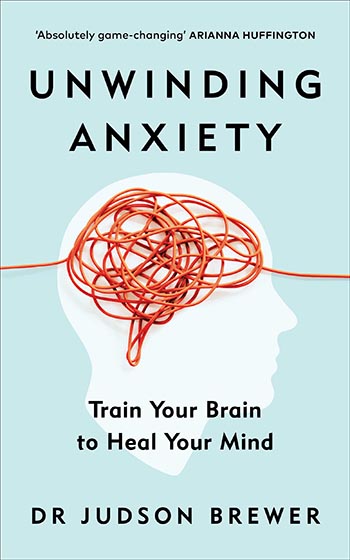
| |||
| 23 Dec 2020 | How to Tell Better Stories | 00:40:17 | |
This is a re-broadcast. The episode originally ran in November 2018. Humans are storytelling and story-listening creatures. We use stories to teach, persuade, and to make sense of the complexities of existence. Being able to craft and deliver a good story is thus a real advantage in all areas of life, giving you a foot up when doing job interviews, going on dates, interacting with friends, or making a sales pitch. Fortunately, good storytelling is a skill that can learned by anyone. Here to teach us the art of storytelling is Matthew Dicks, a writer, five-time Moth GrandSlam storytelling winner, and the author of the book Storyworthy: Engage, Teach, Persuade, and Change Your Life through the Power of Storytelling. Today on the show, Matthew walks us through the nuts and bolts of how to craft a compelling story. We begin our conversation discussing ways to generate story ideas, why good stories don’t have to be about big moments, and why he recommends a practice called "Homework for Life." Matthew then tells us what we can learn from movies about making a story so engaging that people are waiting to hear what you say next. We also discuss the don'ts of storytelling, including how to never begin a story. And we end our conversation with a five-minute story from Matthew that showcases all the principles we discussed during the show. Get the show notes at aom.is/storyworthy. | |||
| 25 Dec 2024 | Philosophical Tools for Living the Good Life | 01:02:07 | |
Note: This is a rebroadcast. Most everyone wants to live a good, meaningful life, though we don’t always know what that means and how to do it. Plenty of modern self-improvement programs claim to point people in the right direction, but many of the best answers were already offered more than two thousand years ago. My guests have gleaned the cream of this orienting, ancient-yet-evergreen advice from history’s philosophers and shared it in their new book, The Good Life Method: Reasoning Through the Big Questions of Happiness, Faith, and Meaning. Their names are Meghan Sullivan and Paul Blaschko, and they’re professors of philosophy at the University of Notre Dame. Today on the show Meghan and Paul introduce us to the world of virtue ethics — an approach to philosophy that examines the nature of the good life, the values and habits that lead to excellence, and how to find and fulfill your purpose as a human being. We discuss how to seek truth with other people by asking them three levels of what they call “strong questions” and engaging in civil and fruitful dialogue. We then delve into why your intentions matter and why you should use “morally thick” language. We also examine the role that work and love has to play in pursuing the good life, and how the latter is very much about attention. We end our conversation with how a life of eudaimonia — full human flourishing — requires balancing action with contemplation. Resources Related to the Podcast
Connect With Meghan and Paul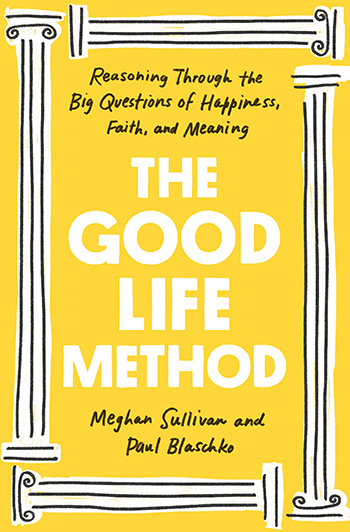
| |||
| 21 Jun 2023 | Become a Morning Workout Person | 00:52:40 | |
Working out at any time of day is great. But my guest says there are distinct benefits to doing it in the a.m., and he's going to walk you through everything you need to know, from mindset to habits, to become a morning workout person. Anthony Arvanitakis is a bodyweight training coach and the author of The 7 A.M. Workout Edge: Wake Up, Work Out, Own the Day. Today on the show, he offers concrete tips for overcoming the challenges of working out in the morning, from getting out of bed to finding the time to do it before work, including his "Brain Start-Up Routine" for shaking off the just-woken-up inertia to get going. In the latter part of the show, Anthony details how to do a highly effective at-home bodyweight workout that can easily fit into your morning routine and requires minimal equipment and only 30 minutes. We also talk about how to combine bodyweight training with cardio to do something he calls "cardiosthenics" that's great for fat loss. Resources Related to the Podcast
Connect With Anthony Arvanitakis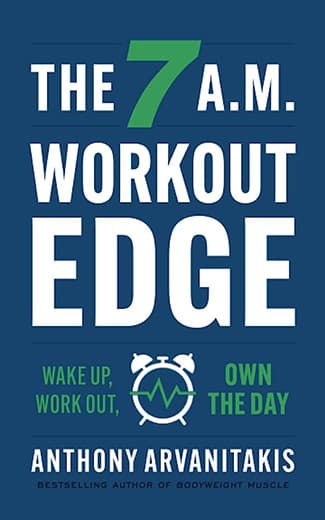
| |||
| 14 Jul 2021 | Men Without Chests | 00:47:07 | |
“We make men without chests and expect from them virtue and enterprise. We laugh at honor and are shocked to find traitors in our midst.” While this quote from C.S. Lewis is often cited, few completely understand what Lewis meant by it, nor understand the book from which it was taken, The Abolition of Man, which, unlike Lewis's more popular works of fiction and Christian apologetics, is a broad philosophical treatise aimed at everyone, and perhaps the most admired and yet least accessible of Lewis's writings. My guest today has written a guide, called After Humanity, that is designed to make The Abolition of Man more understandable to the average reader. His name is Dr. Michael Ward and he's both a Catholic priest and a Senior Research Fellow at Oxford. Michael kicks off our conversation by offering a big picture overview of what The Abolition of Man was about, which centers on Lewis's argument against subjectivism, and for the idea that there exists objective moral values, the denial of which brings destructive consequences. We unpack the case Lewis makes for the existence of a natural order which underlies all religions and cultures, and why he called this universal, objective reality the "Tao." We then get into what Lewis meant by the idea of making "men without chests," the function of a man's chest, and why chests aren't being developed. We end our conversation with why moral debates can seem so shrill and fruitless in a world without agreement upon objective values, and if anything can be done to build the chests of modern men. | |||
| 22 Aug 2022 | The Groundhog Day Roadmap for Changing Your Life | 00:43:20 | |
Do you feel stuck in life? Inwardly you keep repeating the same thoughts, outwardly you keep repeating the same routine, and on and on a cycle of unhappy disappointment goes. To break the cycle, maybe what you need to do is watch a film that has become synonymous with this kind of stuck-ness — Groundhog Day — which my guest says contains the roadmap to escaping a life lived on autopilot. His name is Paul Hannam, he’s the author of The Wisdom of Groundhog Day: How to Improve Your Life One Day at a Time, and today on the show, Paul unpacks the deeper philosophical layers of what’s considered one of the best movies of all time. Paul explains how the film teaches us that to escape the ruts of what he calls the “Groundhog Day condition,” we must first make an inner change where we learn to approach life in a more grateful, present-focused, engaged way. From there, we can embrace the film’s unique strategy for change, which is to experiment with doing something new every day, thereby refining and improving our lives through the process of trial, error, and progressive improvement. Resources Related to the Podcast
Connect With Paul Hannam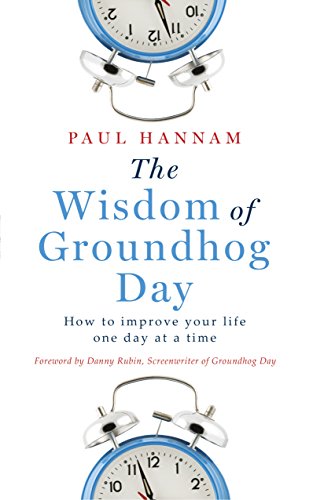 Listen to the Podcast! (And don’t forget to leave us a review!) | |||
| 26 Dec 2022 | How Testosterone Makes Men, Men [Encore] | 01:04:15 | |
What creates the differences between the sexes? Many would point to culture, and my guest today would agree that culture certainly shapes us. But she’d also argue that at the core of the divergence of the sexes, and in particular, of how men think and behave, is one powerful hormone: testosterone. Her name is Dr. Carole Hooven, and she’s a Harvard biologist and the author of T: The Story of Testosterone, the Hormone That Dominates and Divides Us. Today on the show, Carole explains the arguments that are made against testosterone’s influence on shaping men into men, and why she doesn’t think they hold water. She then unpacks the argument for how testosterone does function as the driving force in sex differences, and how it fundamentally shapes the bodies and minds of males. We delve into where T is made, how much of it men have compared to women, and what historical cases of castration tell us about the centrality of testosterone in male development. We then discuss how T shapes males, starting in the womb, and going into puberty and beyond, before turning to its influence in athletic performance. We end our conversation with Carole’s impassioned plea for celebrating what’s great about men. Resources Related to the Podcast
Connect With Carole Hooven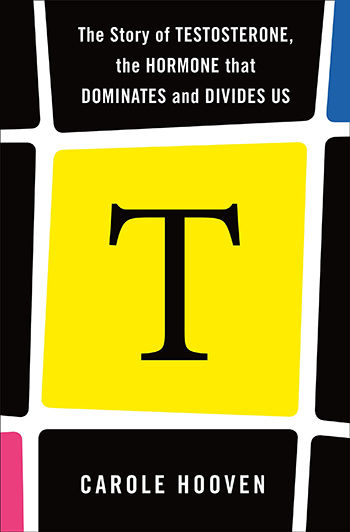
| |||
| 02 Aug 2023 | The Most Insightful Personality Test | 00:48:54 | |
Personality tests sometimes come in for criticism these days for not being very accurate or helpful or for putting people into boxes. And it’s true that no test can ever entirely peg the complexities of personality, and they shouldn’t be applied with too much rigidity. But what these tests are useful for is serving as a prompt for reflecting on the particular ways you think, feel, and act, and, perhaps even more importantly, getting you to think about the fact that other people can see and approach the world in ways that are fundamentally different from your own. I haven’t found a personality test that better serves as this kind of tool than what’s called the “People Code” or the “Color Code,” which categorizes people into four colors: Reds, Blues, Whites, and Yellows. I’ve found it uncanningly insightful in helping me understand myself and others better, and it’s become a regular topic of conversation amongst my family and friends. Today I talk to the creator of the Color Code Personality Profile, psychologist Dr. Taylor Hartman. We discuss the strengths and weaknesses of the four color types, how to interact with each color to bring out their best traits, and how the colors combine in relationships. We then discuss the importance of developing the strengths of other colors besides your own, a process Taylor calls becoming “charactered.” Learn More/Connect With Taylor Hartman
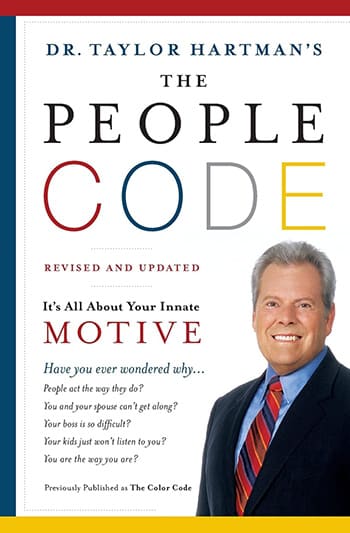
| |||
| 27 Jun 2022 | The Fascinating Life of America's Forgotten Founding Father | 00:56:54 | |
The 18th century doctor, civic leader, and renaissance man Benjamin Rush was one of the youngest signers of the Declaration of Independence, edited and named Thomas Paine's Common Sense, implemented medical practices that helped the Continental Army win the Revolutionary War, made sure Benjamin Franklin attended the Constitutional Convention, and shaped the medical and political landscape of the newly formed United States. Yet despite his outsized influence, the varied and interesting life he led, and the close relationships he had with other founding fathers like George Washington, Thomas Jefferson, and John Adams, Rush is hardly remembered today. That's because of just how close his relationship with those other founders was. Rush was a personal physician to them and their families, and after his death, they suppressed his legacy, not wanting the intimate and unflattering details he had recorded in his letters and journals to be publicized. In fact, his memoir was considered too dangerous to be published and wasn't found for nearly 150 years. My guest will re-introduce us to this forgotten figure. His name is Stephen Fried, and he's the author of Rush: Revolution, Madness, and Benjamin Rush, the Visionary Doctor Who Became a Founding Father. Today on the show, Stephen takes us through Rush's fascinating life, from his self-made rise out of inauspicious childhood, to how he was able to reconcile an estranged Jefferson and Adams before his death, and what Stephen has learned from studying a character who lived through very fraught and not totally unfamiliar times. | |||
| 10 Jul 2024 | A Surprising Solution for Disordered Masculinity | 00:53:29 | |
There has been a lot of media coverage and dialogue about the struggles men are facing in the modern day. There's been some solutions forwarded to these struggles as well. Among these, Dr. Anthony Bradley has a more surprising idea that you don't hear every day: revitalizing college fraternities. Anthony is a research fellow and professor and the author of Heroic Fraternities: How College Men Can Save Universities and America. In the first part of our conversation, Anthony offers his take on the state of men in the modern day, the difference between heroic and disordered masculinity, the insights that a writer from the mid-20-century can shed on the forms that disorder can take, and why many men today are choosing the path of resignation. We then turn to Anthony's idea that college fraternities can be the training ground for virtue. We talk about the loftier origins of fraternities, why, at some universities, they devolved into organizations that have become symbolic of the worst traits of masculinity, and Anthony's six principles for reviving the potential of fraternities to shape great men. Resources Related to the Podcast
Connect With Anthony Bradley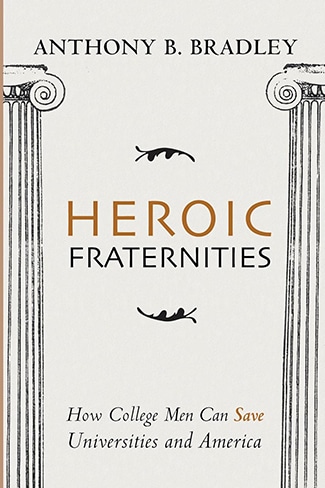
| |||
| 16 Sep 2024 | Is Self-Control Overrated? | 01:05:24 | |
Self-control, the ability to resolve a conflict between two competing desires, is frequently touted as the golden key to success. But many of the most popular ideas about self-control are actually at odds with how it really operates. Here to unpack some of the lesser-understood and counterintuitive ideas around discipline and willpower is Michael Inzlicht, a professor of psychology who has studied the nature of self-regulation in depth. In the first part of our conversation, Michael unpacks the popular ego depletion model of willpower and how it hasn't held up to scientific scrutiny. We then turn to the surprising fact that the people who seem to exhibit a lot of self-control don't actually exercise a lot of discipline and restraint in their lives, that the achievement of goals is more a function of having virtuous desires, and what contributes to having those desires. Resources Related to the Podcast
Connect With Michael Inzlicht | |||
| 24 Apr 2023 | Toastmasters, Aristotle, and the Essential Art of Rhetoric | 00:50:10 | |
When John Bowe learned that his extremely reclusive cousin, who had lived for decades in his parents' basement, had moved out and gotten married at the age of fifty-nine, John was extremely surprised. What made him equally surprised was how his cousin had finally launched his life. It hadn't been meds or therapy. Instead, he had joined his local Toastmasters club. Duly intrigued, John set off on his own Toastmasters journey, as he details in his book I Have Something to Say: Mastering the Art of Public Speaking in an Age of Disconnection. Today on the show, John shares how he discovered that the ethos of this nonprofit organization parallels the tradition of rhetoric espoused by the ancient Greeks, especially by Aristotle, and why the ability to speak, whether in the context of giving a formal speech or simply having a conversation, continues to be such an essential skill in the modern age. In my favorite part of the show, we discuss how our ideas of authentic speech can actually get in the way of expressing our authentic selves. We then turn to the techniques for better speaking that John learned from joining Toastmasters and how Toastmasters ultimately transformed his own life. Resources Related to the Podcast
Connect With John Bowe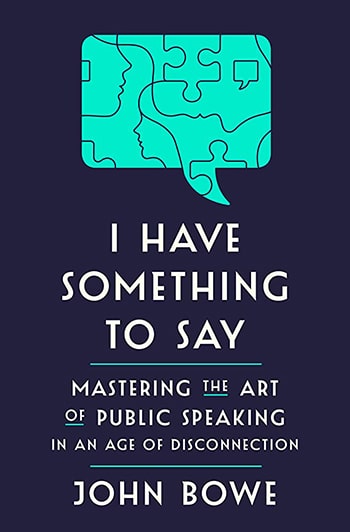
| |||
| 02 Sep 2024 | How to Win Friends and Influence People in the 21st Century | 00:52:25 | |
Note: This is a rebroadcast. Over the last year, my 12-year-old son has been doing one challenge every week as a rite of passage and chance to earn a special trip. Some of these challenges have involved reading a book in a week, and the most recent book we gave him to read was How to Win Friends & Influence People by Dale Carnegie. His review? He said it was the best book he's read so far. So a book written almost 90 years ago can still be a favorite of a kid in the 21st century. Talk about some staying power. The advice in How to Win Friends & Influence People, and Dale Carnegie's other classic, How to Stop Worrying and Start Living, is timeless. But to help introduce it to a new audience, my guest, Joe Hart, has recently co-authored the book Take Command, which synthesizes, updates, and adds to the principles of Carnegie's two perennial bestsellers. Joe is the President and CEO of Dale Carnegie & Associates, which continues Carnegie's work in the present day, and we begin our conversation with some background on the guy who kicked off this work back in 1936. We then talk about what principles we can take from How to Stop Worrying and Start Living on developing a positive mindset. From there, we talk about the big overarching principle of How to Win Friends & Influence People, and how you can use it to improve your relationships. We end our conversation with advice on how to live life with more intentionality and meaning. Resources Related to the Episode
Connect With Joe Hart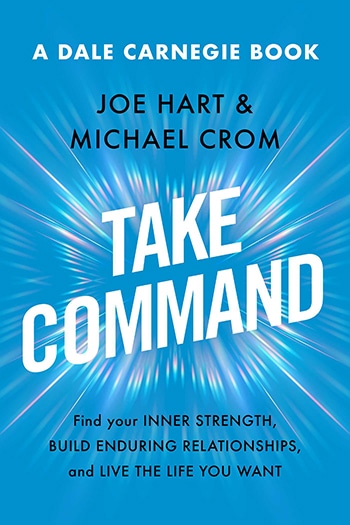
| |||
| 14 Jan 2025 | Stop Saying Um (And Fix the Other Vocal Tics That Are Sabotaging Your Speaking) | 00:48:55 | |
Think about a time you've had to speak in front of others — maybe during a work presentation, a wedding toast, or even on a first date. Did you struggle with using too many filler words, such as "um" and "like," talk too fast, or awkwardly ramble? Most of us try to fix these saboteurs of speech by giving ourselves mental mantras: "Slow down"; "Think about what you want to say." But my guest would say that becoming a more engaging and effective speaker comes down to realizing that it's a very physical act that requires getting out of your head and into your body. Michael Chad Hoeppner, a communication coach who has worked with everyone from presidential candidates to business executives, is the author of Don't Say Um: How to Communicate Effectively to Live a Better Life. Today on the show, Michael explains why you need to treat speaking as a sport and shares embodied drills and exercises — from playing with Legos to talking with a wine cork in your mouth to throwing a ball against a wall — that will fix common delivery problems, including eliminating ums, enhancing vocal variety, and managing your gestures. Resources Related to the Podcast
Connect With Michael Chad Hoeppner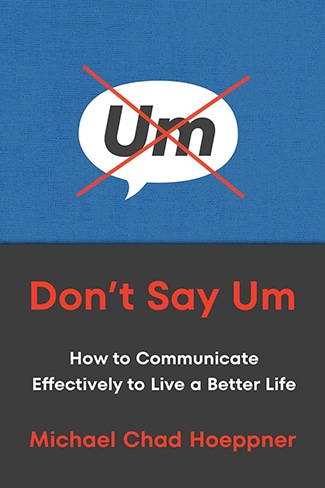
| |||
| 01 Jul 2024 | Books, Routines, and Habits: The Founders' Guide to Self-Improvement | 00:44:50 | |
A lot of self-improvement advice and content feels empty. And there's a reason for that. It often offers routines and habits to practice, but doesn't offer a strong, overarching reason to practice them. That's why the self-improvement advice of the Founding Fathers is particularly compelling. Though they were imperfect men, they had a clear why for trying to become better than they were. For the Founders, life was about the pursuit of happiness, and they equated happiness with excellence and virtue — a state that wasn't about feeling good, but being good. The Founders pursued happiness not only for the personal benefit in satisfaction and tranquility it conferred, but for the way the attainment of virtue would benefit society as a whole; they believed that political self-government required personal self-government. Today on the show, Jeffrey Rosen, a professor of law, the president of the National Constitution Center, and the author of The Pursuit of Happiness, shares the book the Founders read that particularly influenced their idea of happiness as virtue and self-mastery. We talk about the schedules and routines the Founders kept, the self-examination practices they did to improve their character, and how they worked on their flaws, believing that, while moral perfection was ultimately an impossible goal to obtain, it was still something worth striving for. Resources Related to the Podcast
Connect With Jeffrey Rosen
| |||
| 18 Feb 2025 | The Power of the Notebook — The History and Practice of Thinking on Paper | 00:52:19 | |
The idea for the Art of Manliness came to me 17 years ago as I was standing in the magazine section of a Borders bookstore. As inspiration struck, I took my Moleskine out of my pocket and jotted down some notes, like potential names — I considered things like “The Manly Arts” before settling on “The Art of Manliness” — categories of content, and initial article ideas. Almost two decades later, the fruits of those notebook jottings are still bearing out. That’s the power of a pocket pad’s possibilities, something Roland Allen explores in The Notebook: A History of Thinking on Paper. Today on the show, Roland traces the fascinating history of notebooks and how they went from a business technology for accounting to a creative technology for artists. We talk about how famous figures from Leonardo da Vinci to Theodore Roosevelt used notebooks, the different forms notebooks have taken from the Italian zibaldone to the friendship book to the modern bullet journal, and why keeping a personal diary has fallen out of favor. Along the way, we discuss ways you can fruitfully use notebooks today, and why, even in our digital age, they remain an irreplaceable tool for thinking and creativity. Resources Related to the Podcast
Connect With Roland Allen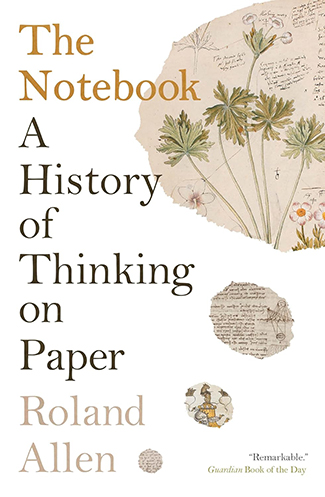
| |||
| 19 Oct 2022 | A Guide to Getting Off the Grid | 00:54:46 | |
Note: For fall break, the McKays are attempting their first familial backpacking trip. Kate and I have been before, but we've never brought the kids, so this will be fun. While we're out of touch, please enjoy this rebroadcast with Gary Collins about going off the grid for a much longer period of time. Gary unfortunately passed away this fall, but he left a lot of great tips on simplifying your life in this episode. Many dream of leaving the city and all its tethers and obligations and creating a simpler, more independent life farther from the mainstream population and entirely off the grid. But how do you go from that daydream to making such a move a reality? My guest walks us through the process today. His name is Gary Collins, he made the leap himself and now lives off the grid in Northeast Washington, and he's the author of several books on off grid living as well as simplifying your life. We begin our conversation today with why Gary decided to leave his conventional, urban, 9-5 existence to find a freer lifestyle, and how he defines being off the grid. We then get into why Gary thinks you should make the move to living off the grid in a series of steps, the first of which is to simplify your existing life in three main ways. Gary then makes the case for why living in a RV should be the next step in your journey, before discussing the process of finding land for your off grid home, and the factors to consider in picking a locale. From there we get into how those who live off the grid take care of water, sewage, power, and internet, how they construct the house itself, and what to know about the start-up costs involved. We end our conversation with a discussion of getting off the grid in a more metaphorical way by quitting social media, and why Gary thinks you should pull the plug on those platforms, even if you're an entrepreneur. If reading this in an email, click the title of the post to listen to the show. Resources/People/Articles Mentioned in Podcast
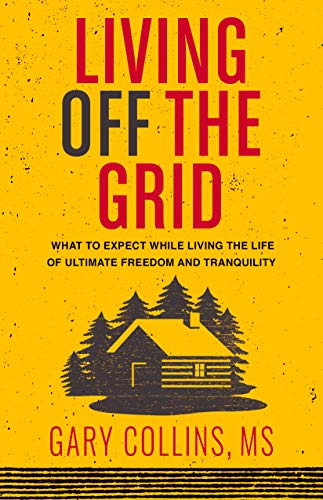 Listen to the Podcast! (And don’t forget to leave us a review!)     Listen to the episode on a separate page. Subscribe to the podcast in the media player of your choice. Listen ad-free on Stitcher Premium; get a free month when you use code "manliness" at checkout. Podcast Sponsors | |||
| 14 Oct 2024 | The Problems With the Cult of Leadership | 00:35:02 | |
Are leaders born or made? Judging by the 50 billion dollar leadership development industry, the answer is definitely the latter. From schools to workplaces, everyone is seen as a potential leader and expected to become one by undergoing leadership training. My guest questions the assumptions underlying this phenomenon, which he calls "the leadership industrial complex," and says that the cult of leadership, and its idea that everyone can and should become a leader, can create burnout and unhappiness. Elias Aboujaoude is a Stanford professor of psychiatry and the author of A Leader's Destiny: Why Psychology, Personality, and Character Make All the Difference. Today on the show, Elias describes the state of the leadership industrial complex, the mathematical impossibility it forwards that everyone can be a leader and no one is a follower, and the primary presumption it makes that leadership can be taught. Elias argues that, in fact, a lot of what makes for good leadership is innate and potentially unchangeable. We discuss the implications of this fact, and why it's actually okay not to want to be a leader. Resources Related to the Podcast
Connect With Elias Aboujaoude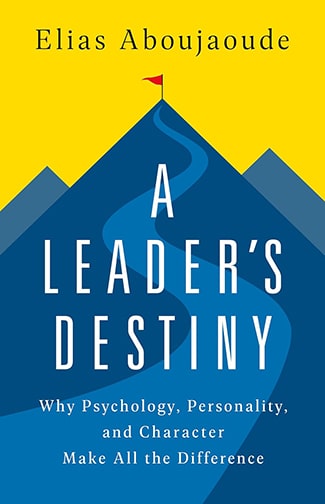
| |||
| 14 Nov 2022 | Live Life in Crescendo | 00:54:05 | |
You’ve heard of The 7 Habits of Highly Effective People. But did you know that its author, Stephen Covey, was in his late fifties when it came out? After it became a monumental bestseller, Covey continued to work on new book ideas, one of which encapsulated his own experience with late-in-life success and his commitment to having an ever-forward-looking attitude. A decade after his death, that book has finally been brought to fruition by Stephen’s daughter, Cynthia Covey Haller. It’s called Live Life in Crescendo: Your Most Important Work Is Always Ahead of You, and its contents really represent the capstone habit to those that came before. Today on the show, Cynthia unpacks the crescendo mentality and how it represents a commitment to continual learning, growth, and change that you can adopt at any age. We discuss how embracing the crescendo mentality is particularly important in midlife, why that stage of life can be uniquely challenging whether you’ve achieved success or are struggling, and the shifts people in each of those situations can make to find greater fulfillment. Resources Related to the Episode
Connect With Cynthia Covey Haller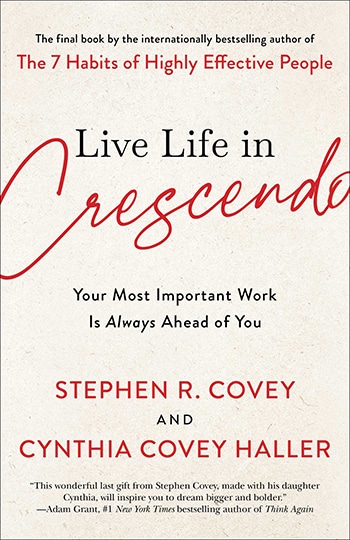
| |||
| 08 Nov 2021 | A Surprising Theory on Why We Get Fat | 01:09:04 | |
There are two dominant theories as to why Westerners have gotten increasingly obese in the last fifty years. One is that we're eating too many carbs and carbs make us fat. Another is that our primitive appetite — which is wired to gorge on calorically dense foods as a survival mechanism — is misaligned with a modern landscape in which food is available in an overabundance. My guest today says that there's too much evidence which contradicts these theories for them to completely explain the problem of weight gain, and forwards a different and quite surprising theory as to what may be going on instead. His name is Mark Schatzker and he's the author of The End of Craving: Recovering the Lost Wisdom of Eating Well. In order to arrive at Mark's theory on the rise in obesity, we first unpack several pieces of the puzzle, each fascinating in its own right. We discuss how the body, rather than having a natural propensity to gain weight, actually typically wants to stay at a healthy set point, the difference between wanting and liking and how obese people crave food more but enjoy it less, and why it is that humans take pleasure in eating. We then get to how food additives, like artificial sweeteners, and, strangely enough, even certain vitamins, may be shifting the body's set point, increasing people's craving for food, and triggering weight gain. We end our conversation with Mark's counterintuitive call to fight obesity by thoroughly enjoying truly delicious food. Resources Related to the Podcast
Connect With Mark Schatzker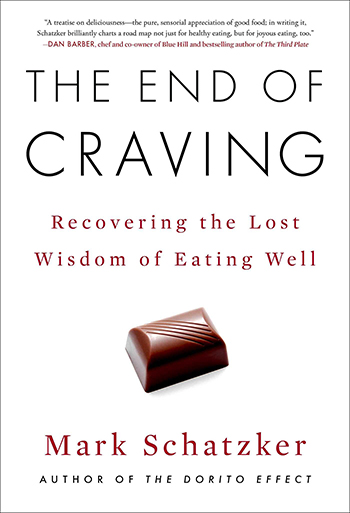
| |||
| 05 Aug 2024 | Lose Weight and Keep It Off With Flexible Dieting | 00:48:50 | |
When many people try to lose weight, they choose a specific, cookie-cutter diet that claims to be the one true way to shed pounds. My guest says that approach is bound to backfire, and that there's a better way to lose weight and change your body composition. Alan Aragon is a researcher and educator, a pioneer of evidence-based nutrition, and the author of Flexible Dieting: A Science-Based, Reality-Tested Method for Achieving and Maintaining Your Optimal Physique, Performance & Health. Today on the show, Alan offers an intro to his method of flexible dieting, in which, as long as you stay in a caloric deficit and hit your daily protein target, you can decide on how much fat and carbs to consume according to personal preference. We discuss what to keep in mind as you create your own individualized nutrition plan, including how much protein you need a day, the minimum amount of fat to get in your diet to avoid a decrease in testosterone, and the minimum of carbs to consume to maximize muscle gain. And, because flexible dieting is also about not rigidly sticking with your diet 100% of the time, Alan shares how often you should take a break from your diet to eat what you want. Resources Related to the Podcast
Connect With Alan Aragon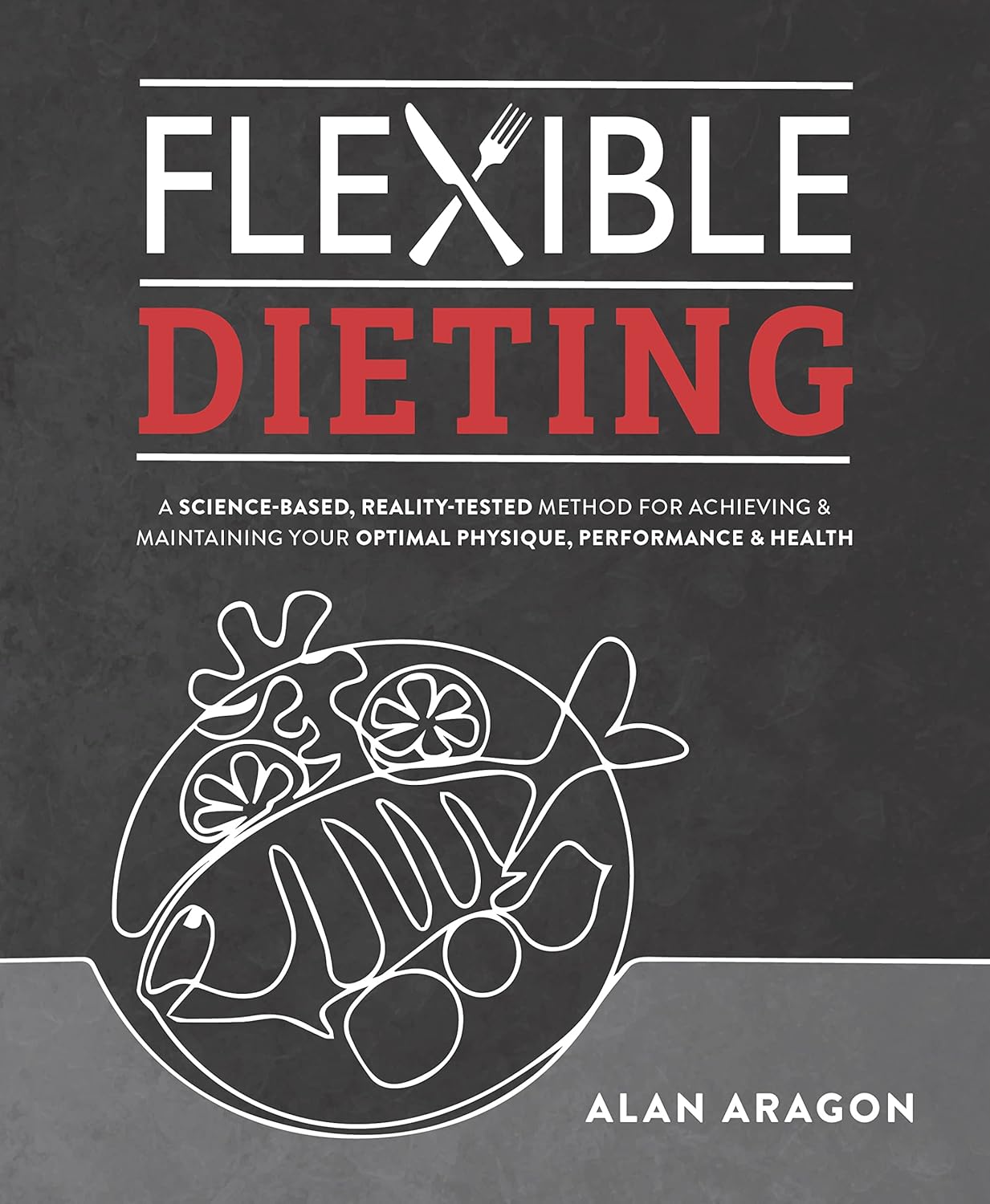
| |||
| 20 Jul 2022 | Escape the Safety Trap | 00:45:28 | |
We like to think that our personal safety and the safety of our loved ones is something that other people — law enforcement, school administrators, social media moderators — will take care of for us. My guest today, Spencer Coursen, would say that while this mindset may help us feelsafe, it's actually when we feel the most safe, that we're in the greatest danger. Spencer — who's a combat veteran and a threat management expert — calls this paradox "the safety trap," and he's the author of a book of the same name. Today on the show, Spencer shares the factors that can put us in the safetytrap, and ways to escape it. We discuss how an avoidance mindset and a reliance on false authority can put us in greater danger, how the run-hide-fight rubric for responding to an active shooter has been misapplied, and how being too polite can get you killed. From there we turn to ways you can take responsibility for your own safety, including knowing the warning signs that someone may take violent action and staying physically fit. We also discuss what to do if people are sending you potentially threatening messages online. Resources Related to the Podcast
Connect With Spencer Coursen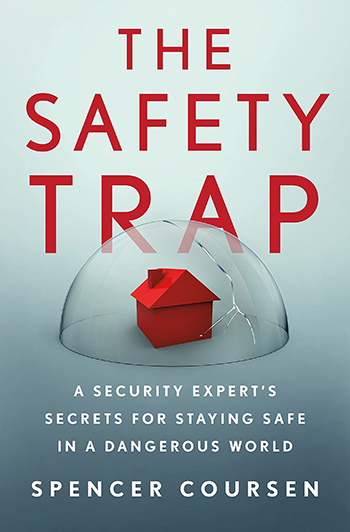
| |||
| 08 Nov 2023 | 10 Unchanging Ideas for Navigating an Ever-Changing World | 00:57:04 | |
To figure out what will happen in the future, we typically make guesswork predictions and look to particular periods in the past that seem like potential parallels. My guest says that to figure out what will happen next, and how best to navigate that coming landscape, the best things to consider are those that have been true in every time, and will be true until the end of it. Morgan Housel is a venture capitalist and the author of Same as Ever: A Guide to What Never Changes. Today on the show we talk about ideas and principles that never change that can help you be successful in an ever-changing world, including how the biggest risks are those you can’t see, how the idea of compound interest applies beyond your finances, how your expectations can sabotage your happiness, why you need to learn to accept that things are supposed to be hard, and how success can lead to failure. Morgan also shares his rubric for choosing your reading, what genres of books he finds most useful for improving long-term thinking, and two books he especially recommends for broadening your perspective. Resources Related to the Podcast
Connect With Morgan Housel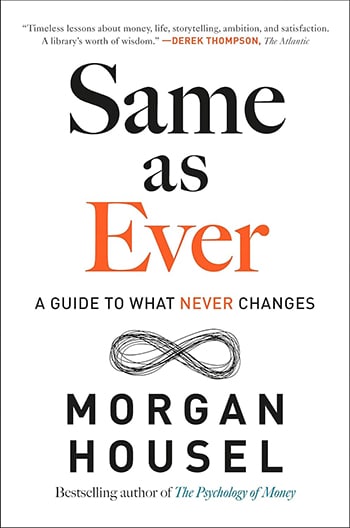
| |||
| 17 Apr 2023 | The Science of a Better Daily Routine | 00:41:13 | |
There's plenty of advice out there about how to have a better daily routine. But what's just bunk and what actually works to improve the quality of your day and your overall life? My guest, medical-doctor-turned-science-educator Stuart Farrimond, took a deep dive into the research to find the authoritative answers to that question, and he shares them in his book Live Your Best Life: 219 Science-Based Reasons to Rethink Your Daily Routine. Today on the show, we walk through a daily routine, from morning to night, and Dr. Farrimond shares some best practices to make the most of it. We discuss why waking up to an alarm clock feels so terrible, why you shouldn't drink coffee first thing in the morning, the ideal length for an afternoon nap, how to improve your commute, the best time of day to exercise, and more. Resources Related to the Podcast
Connect With Stuart Farrimond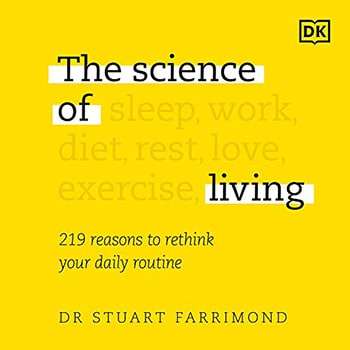
| |||
| 15 Jul 2024 | Stop Drowning in Tedious Tasks by Taming Your Life Admin | 00:48:12 | |
Filling out paperwork. Making travel reservations. Paying bills. Shopping for groceries. Returning packages. These are all examples of life admin — the little tasks we have to do to keep our lives moving along. Life admin is typically pretty tedious and annoying. But staying on top of it is essential to reducing the stress and chaos that would otherwise burden our relationships, muck up the gears of our schedules, and prevent us from participating in all the fun and fulfilling parts of life. Fortunately, there are ways to better manage your life admin. Here to share some of them is Dinah Rowe-Roberts, the co-host of the Life Admin Life Hacks podcast and the co-author of a book of the same name. Today on the show, Dinah explains what lists you should be keeping, including the 10-minute time killers list, why you should do a regular “hour of power” to stay on top of things, how to schedule your life admin, how to keep track of and divvy up chores between you and your spouse, how to get all your meal planning and grocery shopping done in less than 15 minutes a week, how to streamline your kids’ schedules and your vacation planning, and much more. Resources Related to the Podcast
Connect With Dinah Rowe-Roberts | |||
| 06 Jun 2022 | The Surprising Science Behind Building Stronger Relationships | 00:46:05 | |
We've all heard by now just how important strong relationships are to our health and well-being. But a lot of the common advice and conventional wisdom out there about how to build stronger relationships doesn't end up taking us closer to that goal. My guest today has spent years sorting through what really builds better friendships, reignites love, and helps people get closer to others, and he shares these research-backed insights in his new book: Plays Well with Others: The Surprising Science Behind Why Everything You Know About Relationships Is (Mostly) Wrong. Eric shares what he's learned today on the show, beginning with why we're good at figuring out someone's personality from the moment we meet them, but bad at reading their thoughts and feelings, and how to get better at the latter by making other people more readable, as well as how to make a better first impression yourself. We then turn to what makes friendship a unique relationship that makes us uniquely happy, and the two "costly signals" that most develop friendship. We also get into why friends we feel ambivalent about are actually worse for us than outright enemies. We spend the last part of our conversation on how the modern age is both the worst and the best time for marriage, and how the key to ensuring that yours is one of the happiest in history is maintaining positive sentiment override. Resources Related to the Podcast
Connect With Eric Barker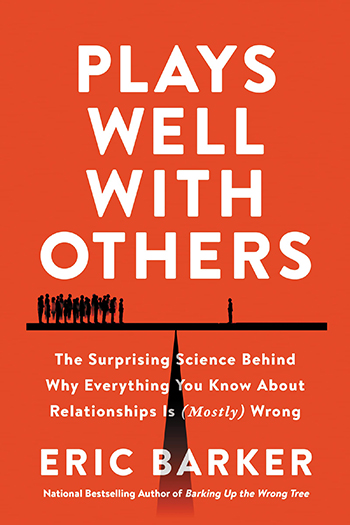
| |||
| 29 Dec 2021 | The Tiny Habits That Change Everything | 00:44:26 | |
Editor's Note: This is a re-broadcast. It originally aired in February 2020. We're a month into the new year now. How are you doing on your resolutions? Have you already fallen off the wagon? Maybe the goal you set for yourself was just too big to successfully tackle. You need to think smaller. Tiny, even. That's the argument my guest makes. His name is Dr. BJ Fogg, and he's the founder and director of Stanford's Behavior Design Lab, as well as the author of the new book Tiny Habits: The Small Changes That Change Everything. Today on the show, BJ walks us through the three components that drive our behavior, including the simple yet overlooked relationship between motivation and ability. He then explains how to build habits that feel easier and require lower levels of motivation by picking behaviors that are good matches for you and breaking them down into smaller parts. We also talk about the need to tie your habits to turnkey prompts, the importance of celebrating your successes, no matter how small, and the way tiny habits can lead to bigger changes. We end our conversation with why you should think about the process of getting rid of your bad habits as untangling them rather than breaking them. Resources/People/Articles Mentioned in Podcast
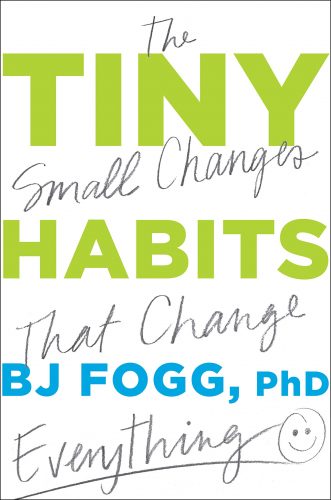
| |||
| 24 Apr 2024 | The Secret World of Bare-Knuckle Boxing | 00:49:56 | |
Have you ever noticed the guy in a fighting stance on the Art of Manliness logo? That’s not just some random symbol; it’s an actual dude: John L. Sullivan, the greatest bare-knuckle boxer of the 19th century. While most people think bare-knuckle boxing came to an end during Sullivan’s era, in fact, it never entirely went away. In his new book, Bare Knuckle: Bobby Gunn, 73–0 Undefeated. A Dad. A Dream. A Fight Like You’ve Never Seen, Stayton Bonner charts bare-knuckle boxing’s rise, fall, and resurgence, as well as the improbable story of its modern chapter’s winningest champion. Today on the show, Stayton describes bare-knuckle boxing’s incredible popularity a century ago, and why gloved boxing took its place while bare-knuckle got pushed into a shadowy, illicit underground. Stayton takes us into that secret circuit which still exists today, revealing the dark, sweaty basements and bars where modern bare-knuckle fights take place and the ancient code of honor that structures them. And Stayton introduces us to a dominant figure in that world, Bobby Gunn, an undefeated bare-knuckle fighter who combines a love of faith, family, and fighting and has helped turn bare-knuckle boxing into what is now the world’s fastest-growing combat sport. Resources Related to the Podcast
Connect With Stayton Bonner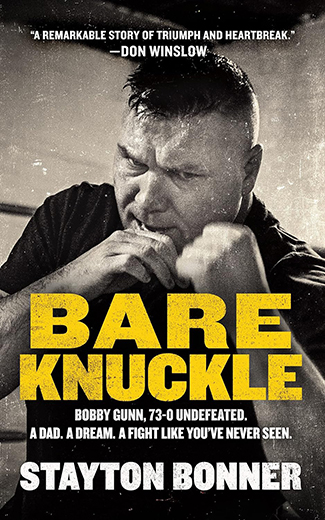
| |||
| 31 Jan 2024 | Launch a Million-Dollar Business This Weekend | 00:50:18 | |
Have you always wanted to be an entrepreneur but don’t have an idea for a business? Or have you been sitting on a business idea for years but have never gotten going with it? Well, after listening to this podcast and by the end of this weekend, you can have a business started that could ultimately make you a million bucks. Here to walk you through the process of becoming a near-overnight entrepreneur is Noah Kagan. Kagan is the founder of AppSumo, a software deals site, and half a dozen other multi-million-dollar businesses, as well as the author of Million Dollar Weekend: The Surprisingly Simple Way to Launch a 7-Figure Business in 48 Hours. Today on the show, Noah and I first discuss the two biggest obstacles that hold people back from starting a business and how to overcome them. We then turn to the practicalities of coming up with and vetting a business idea, how to find your first customers, and how to keep growing from there. Along the way, Noah and I share insights into how we turned AppSumo and Art of Manliness, respectively, from side hustles into rewarding careers. Resources Related to the Podcast
Connect With Noah Kagan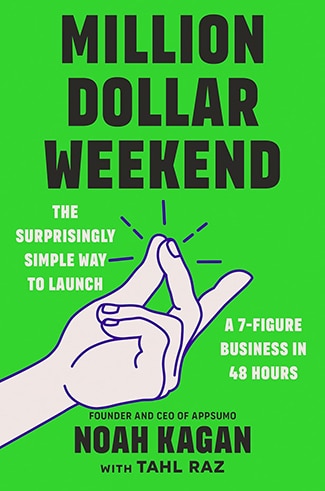
| |||
| 05 Aug 2020 | #633: The World and Vision of Lakota Medicine Man Black Elk | 00:56:33 | |
When he was nine years old in 1872, Black Elk, a member of the Lakota tribe, had a near-death vision in which he was called to save not only his people but all of humanity. For the rest of his life, Black Elk's vision haunted and inspired him as he took part in many of the seminal confrontations between the Lakota and the U.S. government, including those at Little Bighorn and Wounded Knee. My guest today is the author of a biography of this native holy man. His name is Joe Jackson and his book is Black Elk: The Life of an American Visionary. We begin our conversation with a background of the Sioux or Lakota Indians, including how the introduction of the horse turned them into formidable hunters and warriors and how their spirituality influenced their warfare. Joe then introduces us to Black Elk and unfolds the vision that he had as a boy which would lead him to follow in his family's footsteps by becoming a medicine man and guide him for the rest of his life. We then take detours into the seminal battles between the U.S government and the Lakota that Black Elk witnessed firsthand, as well as the Sun Dance and Ghost Dance rituals which helped catalyze them. Joe then explains why Black Elk converted to Catholicism after the Indian Wars and how he fused Lakota spirituality with his newfound faith. We then discuss why Black Elk decided to tell his vision to a white poet named John Neihardt and the cultural influence the resulting book, Black Elk Speaks, had on the West in the 20th century. We end our conversation discussing whether Black Elk ever felt he fulfilled his vision. Get the show notes at aom.is/blackelk. | |||
| 09 Mar 2022 | The Secrets to Making the Perfect Pizza | 00:39:16 | |
Pizza. It's ubiquitous. It's a fixture at parties and office break rooms, and there's a good chance you order it from your favorite place for dinner every single week. But there's one setting where pizza doesn't show up very often, and that's in your own oven, having been made in your own kitchen. But my guest today, who's spent decades pursuing the perfect pizza, says you ought to be making your own pies more often and will teach you the secrets to getting restaurant-quality pizza at home. His name is Dan Richer, and he's the owner and chef of Razza in New Jersey, as well as the author of The Joy of Pizza: Everything You Need to Know. We begin our conversation with what makes pizza such an awesome, go-to, inexhaustibly delicious dish and how to overcome the obstacles that typically prevent people from creating pizzeria-level pizza at home. Dan then gives us his recommendations on sauce, cheese, and toppings in order to create the perfect pizza pie, including his take on that most burning of questions: does pineapple belong on a pizza? Connect With Dan Richer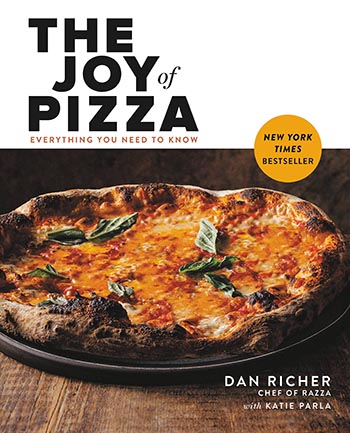 | |||
| 04 Nov 2020 | #658: In Praise of Maintenance in a World Obsessed With Innovation | 00:38:13 | |
Humans like starting new things much more than taking care of older things. This is true on both an institutional and individual level: it's more exciting to build a new road than to maintain it; more exciting to lose weight than to keep it off. There's plenty of short-term pleasure and intrinsic motivation when it comes to pursuing something novel, but the effort to keep up unsexy maintenance on what we've already got takes real intent. Get the show notes at aom.is/maintenance. | |||
| 16 Sep 2020 | #644: How to Develop Greater Self-Awareness | 00:50:42 | |
95% of people say that they're self-aware. But only 10-15% of people actually are. As my guest today says, that means "on a good day, 80% of us are lying to ourselves about how much we're lying to ourselves" and this blind spot can have big repercussions for our success and happiness. Her name is Tasha Eurich, and she's an organizational psychologist and the author of Insight: Why We're Not as Self-Aware as We Think, and How Seeing Ourselves Clearly Helps Us Succeed at Work and in Life. Tasha kicks off our conversation by arguing that our level of self-awareness sets the upper limit of our individual effectiveness and that self-awareness can be developed and is truly the meta skill of the 21st century. She then unpacks what it is you know about yourself when you possess self-awareness, how there are two types of this knowledge, internal and external, and how you can have one without the other. Tasha then outlines the seven pillars of self-awareness, the barriers to getting insights into them -- including falling into the cult of self -- and how these barriers can be overcome, including asking yourself a daily check-in question. We then discuss how two of the most common methods for gaining self-knowledge -- introspection and journaling -- can in fact backfire and how to do them more effectively by asking yourself what instead of why, and actually journaling less instead of more. We also get into why you should be an in-former, rather than a me-former on social media, how to become more mindful without meditation, and how to solicit and handle feedback from other people, including holding something called the "Dinner of Truth." Get the show notes at aom.is/selfawareness. | |||
| 23 Feb 2022 | Beyond OODA — Developing the Orientation for Conflict and Violence | 01:03:07 | |
The OODA Loop — the OODA stands for Observe, Orient, Decide, Act — is a strategic tool designed to help people make better decisions when facing any kind of competitor or opponent. My guest today says that when that opponent is a seasoned criminal, the Orient component of OODA — a person's mindset — is the most underestimated and critical part of the model to understand. His name is Varg Freeborn and he's the author of Violence of Mind: Training and Preparation for Extreme Violence, and Beyond OODA: Developing the Orientation for Deception, Conflict, and Violence. We begin with how Varg's life story has uniquely positioned him to understand the dynamics of violence from the perspectives of both the perpetrators of crime, and the would-be preventers of that crime. Varg shares how he went from being a convicted felon to a self-defense and firearms instructor who's worked with both civilians and law enforcement. We then turn to why it's so important to understand the difference between the orientation of an average person and the orientation of a violent criminal, and why, when the two collide, the latter has a real advantage over the former. We end our conversation with what you can do in terms of mindset and training to close that gap, and be better prepared to handle a violent encounter. Resources Related to the Podcast
Connect With Varg Freeborn | |||
| 07 Dec 2022 | How Polio Made a President | 00:52:58 | |
Of the dozens of men who have served as US president, Franklin Delano Roosevelt had a particularly close connection with the citizens he served. The only president elected to four terms, Americans hung FDR's picture up in their homes, wrote him thousands of letters, and regularly tuned in to listen to his fireside chats. My guest would say that much of the depth, gravitas, and empathy Roosevelt was able to convey to the country was not something inborn, but in fact grew out of a tragedy which befell him at the age of 39: the contraction of polio. Jonathan Darman is the author of Becoming FDR: The Personal Crisis That Made a President, and today on the show, he paints a portrait of what Roosevelt was like before he got polio, and how, despite charm and ambition, he was considered shallow and a political lightweight. We then discuss what it was like for FDR to get polio, what he did during years of bedridden convalescence, and how the disease and his rehabilitation changed him. We talk about how the influence of FDR's polio experience can be seen in the way he guided the country through the Depression and WWII, and the lesson in realistic optimism he offers us today. Connect With Jonathan Darman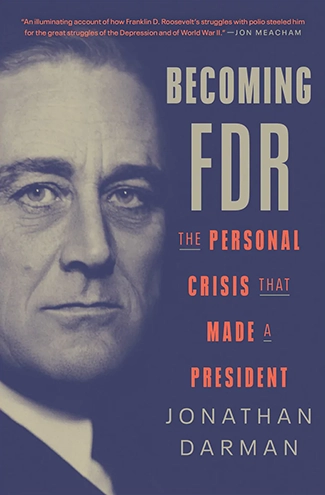 | |||
| 30 Dec 2020 | How to Lose Weight, and Keep It Off Forever | 00:54:49 | |
This is a rebroadcast. This episode originally aired January 2019. If you’re like a lot of men listening to this podcast, you’ve likely made it a goal to lose some weight this year. But if you’re also like a lot of men listening to this podcast, you’ve made that goal before, maybe even succeeded with it, but have had to make it again because you gained all the weight back. My guest today argues that losing weight is actually pretty easy. The real trick is keeping it off. His name is Layne Norton. He’s a professional bodybuilder, powerlifter, and doctor of nutritional science, and today on the show we discuss all things fat loss. We begin our conversation discussing why losing weight is easier than keeping it off, the mechanisms that kick into gear once we shed body fat that cause us to gain all of it, and even more back, and why yo-yo dieting is so terrible for you. We then dig into whether there’s one diet that’s the most effective in helping you lose fat, the tactics you need to use to keep the weight off in the long run, and the real reason exercise plays a role in helping you do so, which isn’t what you think. | |||
| 01 Apr 2024 | Want to Be Happy? Give Yourself Reasons to Admire Yourself | 00:50:58 | |
Happiness and depression can feel like slippery and befuddling things. We can do the things we've been told will make us happy, while still not feeling satisfied. Or, on paper, our lives can look great, yet we feel depressed. And the advice that's out there about these states doesn't always seem to correspond to our lived experience. Ryan Bush has created a new map he thinks can help us make better sense of life. Ryan is a systems designer with a long-standing interest in psychology and philosophy, the founder of Designing the Mind, a self-development organization, and an author. His latest book is Become Who You Are: A New Theory of Self-Esteem, Human Greatness, and the Opposite of Depression. Today on the show, Ryan explains the two dimensions along which we usually plot our happiness, and what he thinks is the missing third dimension: virtue or admirability. Ryan then unpacks his "virtue self-signaling theory" which he thinks can heighten happiness and reduce depression, and which is premised on the idea that if you want to live a flourishing life, you have to give yourself reasons to admire yourself. I really think this is a valuable idea that everyone can get something from and recommend listening through. Resources Related to the Podcast
Connect With Ryan Bush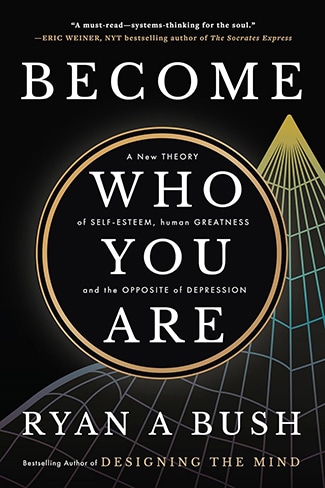
| |||
| 06 Nov 2024 | When to Eat — The Optimal Schedule for Metabolic Health | 00:40:48 | |
When it comes to weight management and all-around good metabolic health, we most often think about what to eat. But my guest would say that it's also crucial to think about when to eat, Emily Manoogian is a chronobiologist and clinical researcher at the Salk Institute for Biological Studies. Today on the show, Emily shares how to create an optimal schedule for a healthy metabolism by aligning your eating schedule with your circadian rhythm. She explains when to start eating after waking, when to stop eating before bed, the importance of sticking to a set schedule, and what happens to your metabolism when you don't follow these timing guidelines. We also talk about how to best distribute your calorie intake throughout the day and how to eat to mitigate the metabolic problems that come with being a shift worker. Resources Related to the Podcast
Connect with Emily Manoogian | |||
| 28 Oct 2024 | Ouch! That Stings! Why Rejection Hurts So Much (And How to Deal With It) | 00:40:00 | |
“Nothing takes the taste out of peanut butter quite like unrequited love,” Charlie Brown once said. Indeed, being spurned by one's crush, or, for that matter, by a friend or potential employer, not only ruins the taste of one's favorite sandwich spread, but causes great psychological distress and even physical pain. Here to walk us through one of life's worst feelings is Mark Leary, a professor of psychology and neuroscience at Duke University, and the editor of Interpersonal Rejection. Today on the show, Mark unpacks the experience of social rejection, including why we're so sensitive to it and the emotions and behaviors it causes, which can be positive and prosocial or maladaptive and even violent. We discuss the role that is played by the sociometer, a concept Mark originated, in monitoring our social acceptance and rejection and what influences its sensitivity to fluctuations in your relational value. And Mark offers advice on how to remove some of the sting of rejection and civilly reject others. Resources Related to the Podcast
Connect With Mark Leary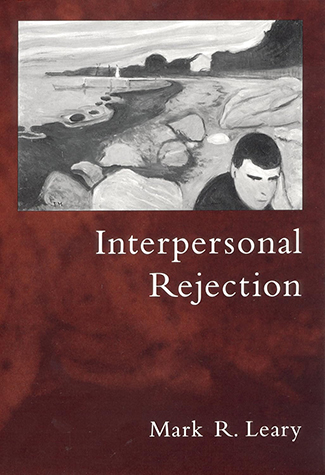
| |||
| 14 Jun 2021 | How to Make Your Life More Effortless | 00:51:39 | |
When we're failing to do the things that are most important in our lives, the typical diagnosis of the problem is to believe we're simply not working hard enough, and the typical solution to the problem is to put in more effort, apply more discipline, and grind it out. My guest would say that we're thinking about both the root and the remedy of the issue in the wrong way. His name is Greg McKeown, and he's the author of the bestseller Essentialism, as well as his latest book, Effortless: Make It Easier to Do What Matters Most. Today on the show, Greg shares how he came to realize that life isn't just about focusing on the essentials, but making those essential things the easy things. We discuss why it is that we commonly make things harder than they need to be, and how while the right thing can be hard, just because something is hard, doesn't make it the right thing. We then discuss the role that emotions like gratitude play in making things feel more effortless, why you need to have a clear vision of what being done looks like (including having a Done for the Day list), how to overcome the difficulty of getting started with things through microbursts of action, and how to keep going with them using a sustainable pace marked by upper and lower bounds. We end our conversation with how seeking an effortless state applies to one's spiritual life. Along the way, Greg shares stories from history and his own life as to what it means to get to your goals using a more effortless path. Get the show notes at aom.is/effortless. | |||
| 25 Apr 2022 | Overcome the Decision Traps Around Diet and Exercise | 00:43:47 | |
When it comes to making behavior change around diet and exercise, it's no secret that many people fail in their efforts. My guest would say that's because too often we only concentrate on the things that drive us towards that change — whether willpower, or motivation, or the rewards that turn behaviors into habits — and that we need to think more about the obstacles keeping us from making the decisions we desire. Her name is Michelle Segar and she's a behavioral science researcher and health coach, as well as the author of The Joy Choice: How to Finally Achieve Lasting Changes in Eating and Exercise. Today on the show, Michelle explains why exercise and eating aren't conducive to becoming habits — at least of the automatic variety — and why it's more helpful to think of these behaviors in terms of "life space" and "choice points." She makes the case for why we shouldn't just focus on what drives behaviors, but also understand what disrupts them, and unpacks four of these disruptors: temptation, rebellion, accommodation, and perfection. Michelle then offers a three-step decision tool for dealing with these disruptors, and explains how to develop the flexibility to choose the perfect imperfect option that keeps you consistent and even celebrate and enjoy the decision to do something instead of nothing. Resources Related to the Podcast
Connect With Michelle Segar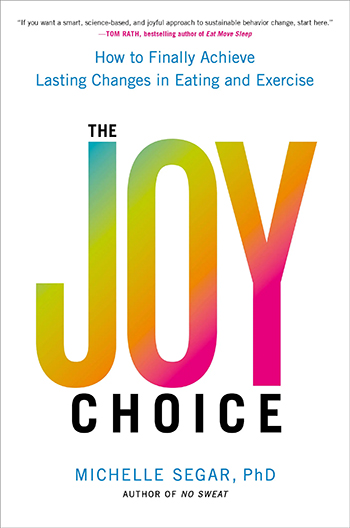
| |||
| 15 May 2023 | The Essential Guide to Visiting and Camping in the National Parks | 00:51:55 | |
America’s national parks are one of the country’s greatest treasures, and many people have it on their bucket list to visit one or more of these gems. But figuring out where to go and how to execute a national park experience can sometimes feel a little overwhelming. Here to offer some really helpful advice on both visiting and camping in the national parks is Jeremy Puglisi, co-author, along with his wife Stephanie, of Where Should We Camp Next?: National Parks: The Best Campgrounds and Unique Outdoor Accommodations In and Around National Parks, Seashores, Monuments, and More. Today on the show, Jeremy walks us through how to navigate the complex reservation system some of the parks have in place and what it takes to secure a campsite inside the parks. He then shares his best tips for getting the most out of a national park experience in general, as well as when you’re visiting some of the country’s most iconic destinations, including Yosemite, Yellowstone, and the Grand Canyon. At the end of our conversation, Jeremy shares the national parks he thinks are underrated, and if you want to avoid the crowds of the national parks, he also shares his picks for the country’s best state parks. Resources Related to the Podcast
Connect With Jeremy Puglisi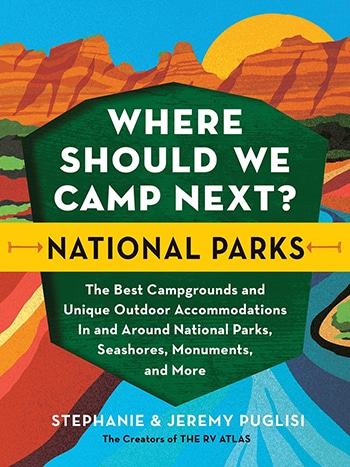
| |||
| 03 Jun 2020 | #616: A Guide for the Journey to Your True Calling | 00:52:59 | |
One of the most burning questions in life is what it is you're called to do with it. What is your life's purpose? What great work are you meant to do? Get the show notes at aom.is/gita. | |||
| 22 Nov 2021 | The Epic Story of the Making of The Godfather | 00:46:38 | |
When it comes to lists of men’s favorite movies, The Godfather is a perennial inclusion. And as hard as this may be to believe, the critically acclaimed and popularly beloved film is coming up on the 50th anniversary of its release. Journalist Mark Seal wrote an in-depth piece on the making of The Godfather for Vanity Fair magazine back in 2009, and after doing even more interviews with director Francis Ford Coppola, the actors of the film, and other behind-the-scenes players, wrote a new book on the subject called Leave the Gun, Take the Cannoli: The Epic Story of the Making of The Godfather. It’s easy to forget that the film was based on a novel by Mario Puzo, and we spend the first part of our conversation there, with Mark unpacking how an indebted gambler became a bestselling novelist. From there we turn to how Puzo’s novel was adapted for the screen — a story as dramatic and entertaining as the film itself. Mark explains why Coppola took the job of directing the film and his genius for casting. He delves into the unexpected selection of Marlon Brando to play Don Corleone, and how James Caan inhabited the role of Sonny, despite not being Italian-American. We get into how a real-life character named Joseph Colombo temporarily shut down production of the film in opposition to the stereotyping of Italian-Americans as mafia, despite the fact Colombo was a mob boss himself. Mark explains why Coppola considered making The Godfather the most miserable experience of his life and the X-factor that ultimately made the film so good. We end our conversation with whether a movie like The Godfather could be made today. Resources Related to the Podcast
Connect With Mark Seal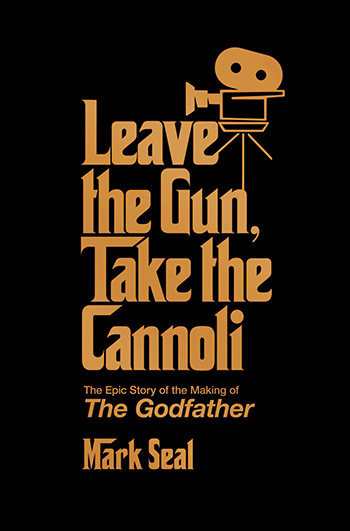
| |||
| 01 Apr 2025 | Beyond Resilience — How to Become Shatterproof | 00:49:58 | |
Resilience is often touted as the end all, be all of coping with life's challenges and setbacks. But my guest knows from her studies, executive coaching, and her own life that sometimes resilience just isn't enough. You need an even more durable source of strength. Dr. Tasha Eurich is an organizational psychologist and researcher and the author of Shatterproof: How to Thrive in a World of Constant Chaos. Today on the show, Tasha explains why the concept of resilience rose to prominence in the 2010s, how resilience can be improved a little as a skill, but is largely an exhaustible capacity, and how you know when you're hitting your "resilience ceiling." We then talk about the more sustainable skillset and strength of becoming shatterproof. We discuss the potential to grow forward instead of simply bouncing back, the psychological needs that have to be met to become shatterproof, and research-backed tools for thriving in life instead of just surviving. Resources Related to the Podcast
Connect With Tasha Eurich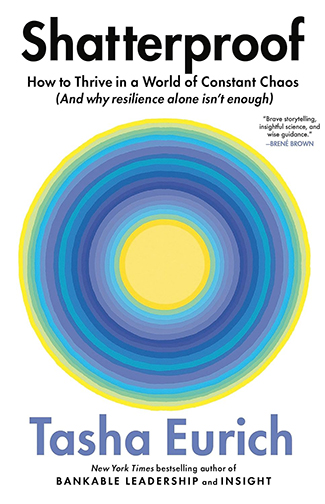
| |||
| 13 May 2024 | The Dude's Guide to Laundry: How to Save Time, Money, and Your Wardrobe | 00:48:24 | |
If you didn’t grow up doing your own laundry, once you headed out on your own, you probably just figured things out on the fly, hoped for the best, and have been doing things the same way ever since. But, while you may be getting the job done okay, you also might be making some mistakes that are costing you time, money, and cleaner clothes. In this episode from the Art of Manliness department of essential life skills, we’ll cover all the things you should have learned as a young man but never did, and how to do your laundry effectively. Our guide is Patric Richardson, aka the “Laundry Evangelist,” a laundry expert who runs how-to-do-laundry camps, hosts the television show The Laundry Guy, and is the author of Laundry Love. Today on the show, Patric shares the one cycle and water temperature you should use for all of your clothes, exactly how much detergent you should be using (which is a lot less than you think), how often you should wash your clothes (which is less often than you think), why you shouldn’t ever use dryer sheets (and what to throw in your dryer instead), how regardless of what the tag says, you can wash anything at home (including a wool suit), how to easily get rid of stains (including yellow pit stains), and many more tips that will save you time, money, and hassle in doing your laundry. Resources Related to the Podcast
Connect With Patric Richardson | |||
| 16 Feb 2022 | The World of the Transcendentalists and the Rise of Modern Individualism | 00:58:17 | |
The town of Concord, Massachusetts has been famous twice in history. First as the location of the "shot heard round the world" which kickstarted the American Revolution in the 18th century, and second, as the home of several famous writers and thinkers, including Ralph Waldo Emerson and Henry David Thoreau, in the 19th. My guest today, professor of history Robert A. Gross, has written landmark books on both of these periods in Concord's history. The first, called The Minutemen and Their World, was published in 1976. Now, nearly 50 years later, he's published a new volume called The Transcendentalists and Their World. In both books, Bob delves into the details of everyday life in Concord in order to illuminate broader trends and forces in American culture. In the case of his second book, he does so to explore how the communal, hierarchical nature of life in America during the Revolutionary period shifted to a more autonomous and bottom-up ethos during the time of transcendentalism — a movement which prized individuality over conformity and intuition over logic, believed divinity existed in each person and throughout nature, and celebrated the authority of the individual over the authority of institutions. In today's episode, Bob and I discuss how changing forces in commerce and religion, as well as a fervent, emerging interest in self-improvement, led to this shift, and how thinkers like Emerson and Thoreau set a new course for what it means to live a life of integrity. We end our conversation with what the world of the transcendentalists has to tell us in our own time period, which, like theirs, is marked by the widespread rejection of top-down gatekeepers. Resources Related to the Podcast
Connect With Bob Gross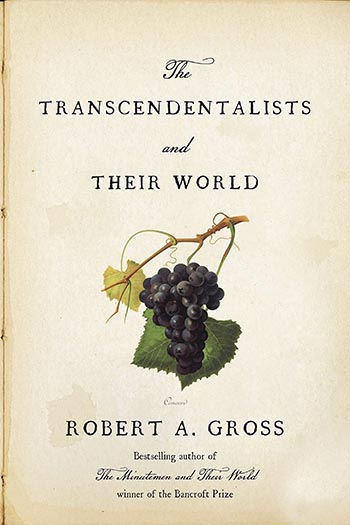
| |||
| 22 Jun 2020 | #621: The Causes and Cures of Childhood Anxiety | 00:44:34 | |
Everyone feels under greater psychic pressure these days, but we adults hope that children, who have always been seen as naturally resilient, have been spared the stress. Unfortunately, kids are increasingly experiencing mental health problems like anxiety at younger and younger ages, and this trend has been going on for years. My guest today wrote a cover article for The Atlantic on the causes and cures of this phenomenon. Her name is Kate Julian and we begin our conversation today by describing the extent to which problems like depression, anxiety, and even suicide have been on the rise among children, and how these issues correlate with continued problems later in life. We then talk about the possible causes behind the increase in childhood anxiety, and whether technology and social media are to blame. We then delve into the idea of how parents are perpetuating their children's anxiety through their own anxiety and their willingness to make accommodations to keep their kids calm and happy. We get into the idea that getting your children comfortable with being uncomfortable can inoculate them against anxiety, and end our conversation with a discussion of whether more exposure to the news of a tumultuous world might actually make kids more resilient. Get the show notes at aom.is/childhoodanxiety. | |||
| 30 Dec 2019 | #572: The Unexpected Upsides of Being a Late Bloomer | 00:44:53 | |
There's an unspoken timeline that people supposedly need to follow to have a successful life: be a good student in high school, get into a good college, and then get a good job right after you graduate. But you've probably met successful people whose lives didn't follow this kind of linear arc and neat timeline, and maybe yours didn't either. Their young adult years weren't very auspicious, and they didn't come into their own and find their bearings until after college, or even much later. My guest today explores the upsides of this kind of trajectory in his book: Late Bloomers: The Power of Patience in a World Obsessed with Early Achievement. His name is Rich Karlgaard and we begin our conversation discussing how he defines a late bloomer and a few examples of some famous late bloomers in history. We then dig into how late bloomers got a bad rap and how society became increasingly obsessed with finding success at a young age. Rich then walks us through the disadvantages of being an early bloomer and the advantages of being a late bloomer, including resilience, self-awareness, and a healthy, motivating sense of self-doubt. Get the show notes at aom.is/latebloomer. | |||
| 17 Feb 2020 | #585: Inflammation, Saunas, and the New Science of Depression | 01:00:21 | |
I've dealt with depression in my life. My body temperature also seems to run hot; in fact my wife Kate has nicknamed me "the baked potato." My guest today says that there may be a connection between those two things. His name is Charles Raison, he's a psychiatrist, professor of psychiatry, and the co-author of The New Mind-Body Science of Depression. We begin our conversation with why Charles thinks it's important to ask the question, "Does Major Depression even exist?" and what we do and don't know about what causes depression. We then turn to the emerging theory that physical inflammation may play a role in depression; Charles describes what inflammation is, and why the body may become inflamed and physically hotter not only in response to physical illness, but psychological stress as well. We then discuss the paradoxical finding that short-term exposure to inflammation in the form of exercise or sitting in a sauna can reduce long-term inflammation, and how hot you probably have to get in a sauna for it to have antidepressant effects. We also talk about how intermittent fasting may have a beneficial effect on inflammation, before turning to whether taking anti-inflammatory drugs could also help, and why you might want to get a blood test to see if your body's inflamed. We end our conversation with Charles' thoughts on how to figure out the right treatment for depression for each individual. Get the show notes at aom.is/inflammationdepression. | |||
| 03 Oct 2022 | Can Virtue Be Taught? | 00:42:20 | |
The ancient Greeks and Romans thought a lot about what it means to live a virtuous life. They believed that good character was essential for achieving both individual excellence and a healthy, well-functioning society. For this reason, they also thought a lot about whether virtue could be taught to citizens, and philosophers put this thinking into practice by attempting to educate the moral ideals of leaders. My guest, professor of philosophy Massimo Pigliucci, explores what the Greco-Romans discovered about the nature and teachability of virtue in his new book: The Quest for Character. Today on the show, Massimo and I discuss how the ancient Greeks and Romans defined virtue, and what it meant to them to live with arete, or excellence. We then look at case studies of philosophers who tried to shape men into being better leaders, including Socrates teaching Alcibiades, Aristotle tutoring Alexander the Great, and Seneca mentoring Nero. Massimo explains how these field experiments turned out, and the takeaways they offer on the question of whether virtue can be taught. We end our conversation with the ancient insights that have been confirmed by modern research that can help us become better people. Resources Related to the Episode
Connect With Massimo Pigliucci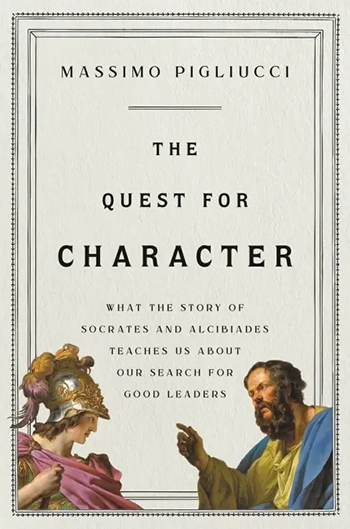
| |||
| 04 Dec 2024 | What Sports Betting Is Really Doing to Players, Games, and Fans | 00:44:25 | |
Sports gambling has exploded in America. You can't watch a game today without being bombarded by ads from betting companies, often co-branded with the major sports leagues themselves. It's a dramatic shift from just seven years ago, when these same leagues were unified in their opposition to legalized sports betting. Michael Lewis, the bestselling author of Moneyball, The Big Short, and The Blind Side, has been exploring this transformation in the latest season of his podcast Against the Rules. Today on the show, Michael explains how we went from prohibition to proliferation, unpacking how a 2018 Supreme Court decision opened the floodgates for an industry that's now seeing over $100 billion in annual bets. We discuss how betting companies use data and psychology to nudge people into making increasingly complex and unfavorable wagers, why young men are particularly susceptible to gambling addiction, and what the rise of "prop bets" means for the integrity of sports. We also get into the concerning public health implications of widespread sports betting and what past addictive epidemics might tell us about where this is all heading. Connect With Michael Lewis | |||
| 01 Nov 2021 | The Metaphysical Club | 00:50:46 | |
In 1872, a group of men that included future Supreme Court Justice Oliver Wendell Holmes, Jr., father of modern psychology William James, and eccentric polymath Charles Sanders Peirce, formed a philosophical society, called the "Metaphysical Club," to exchange and discuss ideas. While very little is known about how this conversational club was conducted over its nine months of life, we do know that each of its individual members made significant contributions to a uniquely American philosophy called pragmatism, and that pragmatism would in turn greatly influence everything from legal theory to education. My guest today profiles the lives and thinking of each of these interesting men in his Pulitzer Prize-winning book: The Metaphysical Club: A Story of Ideas in America. His name is Louis Menand, he's a Professor of English at Harvard, and today we have a conversation about what the philosophy of pragmatism is about, why Holmes, James, and Peirce, as well as the intellectual John Dewey, arrived at, embraced, and forwarded its principles, and how pragmatism shaped American life between the Civil War and WWI. We end our conversation with why pragmatism fell out of favor, and whether it remains salient today. Resources Related to the Podcast
Connect With Louis Menand | |||
| 15 Dec 2021 | Prototype Your Way to a Better Life | 00:43:50 | |
I used to wake up early, around 5:15, and do my workout right after getting out of bed. But I noticed I was tired all day, and just felt kind of stiff and not very strong during my workouts. So I decided to try waking up a couple hours later, and doing my workouts in the late afternoon instead. I found that setting up my schedule this way gave me greater energy, both overall, and during my workouts. My guest says that this tinkering I did with my routine is an example of life prototyping, a process that can be used for anything and everything in order to improve both your personal and professional life. His name is Dave Evans, and as a lecturer in Stanford’s Design Program, he teaches the popular Designing Your Life course, which, as the name implies, takes the principles of design thinking, and applies them to crafting a happy and fulfilling life. He’s also the co-author, along with Bill Burnett, of Designing Your Life and Designing Your New Work Life. Today on the show, Dave explains how one of the central steps to design thinking — prototyping — can help you make both big and small changes that move you closer to the life you want to lead. He explains what prototyping is, how prototyping a life is different from prototyping a product, the two approaches involved with the former, and embracing the design thinking mindset of being immune to failure. Resources Related to the Podcast
Connect With Dave Evans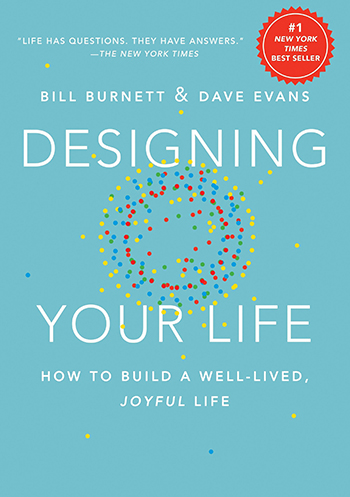
| |||
| 20 May 2024 | Patton and the Bulge: Blood, Guts, and Prayer | 00:47:48 | |
General George S. Patton is known for his aggressive, action-oriented tactical brilliance. His character was also marked by a lesser-known but equally fundamental mystic piety. Those two qualities would come together in the lead up to and execution of Patton's greatest achievement during WWII: the relief of Bastogne during the Battle of the Bulge. Alex Kershaw tells this story in his new book Patton's Prayer: A True Story of Courage, Faith, and Victory in World War II. Today on the show, Alex shares how, when the Third Army's advance into Germany was stalled by plane-grounding clouds and road-muddying rain, Patton commissioned a prayer for better weather that was distributed to a quarter million of his men, and how that prayer became even more urgent after the commencement of the Battle of the Bulge. We also talk about Patton's qualities as a leader and a man, including his reading habits, how he combined a profane assertiveness with a pious faith and a belief in reincarnation, and what happened to him as the war came to a close. Resources Related to the Podcast
Connect With Alex Kershaw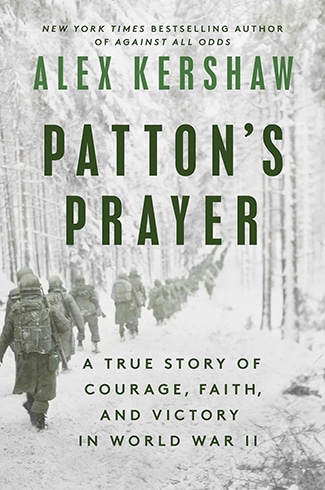
| |||
| 15 Jan 2024 | An Insider's Guide to the Rise of the American Mafia | 01:01:12 | |
You're probably familiar with the American mafia, at least through its portrayal in popular culture. But how did this infamous secret society come to be? Louis Ferrante traces its origins in the first volume of his slated trilogy on the subject, entitled Borgata: Rise of Empire: A History of the American Mafia. While there's been plenty written on the mafia, Ferrante, who was incarcerated for being a mobster himself, offers the first insider's history of this crime organization. Today on the show, he shares the surprising influences on the formation of the mafia in Sicily, why Louisiana and not New York was actually the mob's American Plymouth Rock, the unexpected collaboration between the government and the mafia during WWII, the real reason J. Edgar Hoover didn't go after the mob, why that hands-off approach changed, and much more. Connect With Louis Ferrante | |||
| 06 Jan 2021 | The Complex Coolness of Steve McQueen | 00:51:14 | |
Performances by the actor Steve McQueen in classic films like The Great Escape and Bullitt earned him the nickname "The King of Cool." But behind the scenes, McQueen's character was complex in nature: he could be both difficult and demanding and kind and generous; someone who could act aloof, but care about things deeply. My guest has traced both sides of the coin of McQueen's coolness for decades. His name is Marshall Terrill, and he's the author of multiple biographies on McQueen, including his latest, Steve McQueen: In His Own Words. Today on the show Marshall and I discuss McQueen's enduring influence on popular culture in terms of everything from style to motorcycles, the code he lived both on and off screen, and whether after years of studying McQueen's life Marshall has figured out what it was that made him so cool. We then talk about McQueen's deprived childhood, which left him ever craving affirmation, and his youthful stints in a reform school and the Marines. We get into how he found his way into acting and then to superstardom, despite the fact he could be difficult to work with. Marshall explains McQueen's relationships with women, and the role race car driving played in his life. We also discuss why McQueen had a hermit phase, and how, in a lesser-known aspect of his life, he had a literal come to Jesus moment in which he became a born-again Christian. We end our conversation with McQueen's untimely, tabloid-exploited death at age 50. Get the show notes at aom.is/mcqueen. | |||
| 27 Nov 2023 | Counterintuitive Ideas About Marriage, Family, and Kids | 00:47:34 | |
There are a lot of popular ideas out there around marriage, family, and culture, like, for example, that living together before marriage decreases your chances of divorce, people are having fewer children because children are expensive to raise, and society is becoming more secular because people leave religion in adulthood. Are these ideas actually born out by the data? Today we put that question to Lyman Stone, a sociologist and demographer who crunches numbers from all the latest studies to find out what’s going on in population, relationship, and familial trends. We dig into some of the counterintuitive findings he’s discovered in his research and discuss the possible reasons that cohabitation is actually correlated with a higher chance of divorce, the effect that marrying later has on fertility, why the drop in the number of kids people are having isn’t only about cost but also about the rise in high intensity parenting, and how the increase in societal secularization can actually be traced to kids, not adults. Resources Related to the Episode
Connect With Lyman Stone | |||
| 06 May 2020 | #608: How Caffeine Hooks, Hurts, and Helps Us | 00:46:04 | |
More than 80% of the world's population consumes the same psychostimulant every single day. Yet few of us know very much about our favorite daily drug . . . caffeine. My guest today will shed some light on humanity's love affair with this pick-me-up substance. His name is Murray Carpenter and he's the author of Caffeinated: How Our Daily Habit Helps, Hurts, and Hooks Us. We begin our discussion exploring what caffeine does to our mind and body, before delving into how caffeine consumption developed in different places all around the world and how the way we get our caffeine fix has evolved over the millennia. Murray and I then discuss the popularity of coffee in America and how our grandparents actually drank way more of it than we do today. Murray explains how caffeinated sodas became a stimulating competitor to coffee in the 19th century and how energy drinks became a huge business in the late 20th. Murray and I then discuss how you're probably ingesting more caffeine than you realize, and what the generally recommended maximum amount to consume per day is. We then get into whether caffeine can enhance athletic performance, and how much you need to take for it to make a difference. We then discuss the overlooked benefits of caffeine, as well as its downsides, and end our conversation with the question of whether caffeine is an addictive substance. This episode will get you thinking about your morning joe differently. Get the show notes at aom.is/caffeinated. | |||
| 20 Sep 2021 | The Exercise Prescription for Depression and Anxiety | 00:42:52 | |
If you went to the doctor about treating your depression or anxiety, you might expect to be written a prescription for Zoloft or Xanax. But if you went in to see Dr. Jasper Smits, he might write you a different kind of prescription, one that instructed you to take a jog around the block.
Check out the show notes at aom.is/exerciseformood | |||
| 17 Jun 2020 | #620: How to Deal With Life's Regrets | 00:49:07 | |
We've all asked "what if" questions about our life: What if I had majored in art instead of business? What if I had let my best friend know I liked her as more than a friend? What if I had taken the job offer in Colorado? Sometimes contemplating the imagined possibilities of these alternative histories fills us with sharp pangs of regret. My guest today says that's not necessarily a bad thing. His name is Neal Roese and he's a professor of psychology and marketing and the author of If Only: How to Turn Regret Into Opportunity. Neal and I begin our conversation by unpacking how asking "what if" is to engage in something called "counterfactual thinking," and how you can create a downward counterfactual, in which you imagine how a decision could have turned out worse, or an upward counterfactual, where you imagine how a decision could have turned out better. Neal then explains why living without regret isn't actually that healthy, and why even though regret is an unpleasant feeling, it can be an important spur towards greater improvement, action, and agency. We then do get into the circumstances in which regret can become a negative force, before turning to what Neal's research says are the most common regrets people have in life. At the end of our conversation, we pivot to talking about how imagining how your life could have turned out worse, can make you feel happier. Get the show notes at aom.is/regret. | |||
| 07 Apr 2021 | The Secrets of Public Speaking From History's Greatest Orators | 00:39:53 | |
Despite the fact that public speaking remains an important and relevant skill in our modern age -- you never know when you'll need to give a toast at a wedding, pitch an idea at work, or champion a proposal at a city council meeting -- most of us get very little instruction these days in how to do it effectively. Fortunately, my guest says, we can look to the great orators of the past to get the public speaking education we never received. His name is John Hale, and he's professor of archeology as well the lecturer of The Great Courses course Art of Public Speaking: Lessons from the Greatest Speeches in History. Today on the show, John shares what we can learn about the physicality of public speaking from Demontheses of Athens, the importance of empathetic body language from Patrick Henry, the effective use of humor from Will Rogers, the power of three from the apostle Paul, and the potency of brevity and well-executed organization from Abraham Lincoln. Get the show notes at aom.is/publicspeak. | |||
| 20 Nov 2023 | The Japanese Practice That Can Give More Meaning to an American Holiday | 00:53:43 | |
A focus on gratitude is typical this time of year. But more often than not, the cognitive or behavioral nods we give gratitude around Thanksgiving can feel a little limp, rote, and unedifying. If you feel like this American holiday has been lacking in meaning, maybe what you need is to infuse it with a Japanese practice. The Naikan method of self-reflection grew out of Buddhist spirituality and has been recognized by psychologists as a way to develop greater self-awareness, gratitude, empathy, and direction. Naikan involves asking yourself three questions: What have I received from others? What have I given others? What troubles and difficulties have I caused others? Gregg Krech, who is the executive director of the ToDo Institute, which promotes principles of psychology based on Eastern traditions, has created a Thanksgiving-specific version of Naikan that helps practitioners dig further into its first question. Today on the show, we talk about the way Naikan differs from mainstream gratitude practices and is based less on feeling and more on seeing the world objectively. Gregg shares six prompts that can help you recognize the reality of how you're being supported in the world, cultivate the art of noticing, and embrace life's grace. Resources Related to the Podcast
Connect with Gregg Krech | |||
| 29 Jul 2024 | The Vital Skills We’re Losing to Technology (And How to Reclaim Them) | 00:49:32 | |
Do moments where you run up against your dependence on modern technology get you wondering about the ways some of your personal capabilities seem to be atrophying? Graham Lee has spent years thinking about this idea. While he's a digital skills educator who appreciates the way technology can enhance our abilities, he worries that our ever-increasing reliance on algorithms and artificial intelligence may be robbing us of elements that are vital to the core of who we are. Lee is the author of Human Being: Reclaim 12 Vital Skills We’re Losing to Technology, and today on the show, we talk about some of those dozen endangered skills, including navigation, reading, writing, craftsmanship, and solitude. Lee offers case studies on how these skills enhance our humanness, why their loss matters, and how we can reclaim these capabilities and a greater sense of satisfaction and self-efficacy. Resources Related to the Podcast
Connect With Graham Lee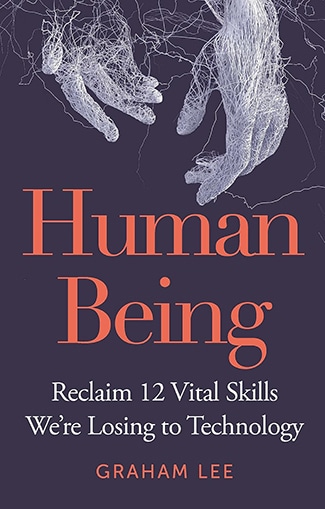
| |||
| 23 Nov 2020 | #663: How to Achieve Physical Autonomy | 00:49:06 | |
Most men want to wake up in the morning knowing their body is ready to handle whatever opportunities and challenges come their way that day, from a real emergency to simply roughhousing with their kids. They want to be able to move without pain and explore the world with confidence. My guest today would say that what this desire is pointing to is the achievement of physical autonomy. His name is Ryan Hurst and he's the head coach at GMB Fitness, which uses bodyweight exercises and skill-based practices to help people get stronger, move better, and never have to doubt themselves physically. Our conversation begins with Ryan's unique background; we discuss how he did gymnastics growing up and then moved to Japan, where he still resides, to learn martial arts, including aikido, kendo, judo, and jiu-jitsu, and how these experiences influenced his fitness journey and philosophy. Ryan then shares how he defines physical autonomy and the three elements that are required to achieve it. From there we discuss the four animal-inspired movements that create the foundation for balanced athleticism, the basic physical skills people should aim to master, and how to train those skills in ways that don't require an onerous amount of time. Get the show notes at aom.is/physicalautonomy. | |||
| 15 Nov 2021 | How the Desire for Status Explains (Pretty Much) Everything | 00:50:09 | |
Being famous. Knowing someone famous. Getting a laugh after telling a joke. Getting a good grade. Getting likes on a social media post. Winning a video game. Cooking a tasty meal. Being good looking. Having inside knowledge. Sharing a good recommendation. We often think of status exclusively in terms of wealth, but it's actually at play everywhere, in every situation where we get the feeling of being of value, where we feel ever so slightly elevated in our relative social position. The universal human desire for status greatly influences our culture, as well as our own behavior and the ups and downs of our mood. We would all do well then to understand status better, and my guest today can help you do that. His name is Will Storr and he's the author of The Status Game: On Social Position and How We Use It. Today on the show, Will walks us through why status in its infinite forms is so important to people, the ways it can be gained through dominance, virtue, and success, and how status games take place both within groups and between them. We talk about the good of status — how it can give us a psychological high and motivate the pursuit of skill, competence, and achievement — as well as its dark sides, including the way that a loss in status, and the resulting feeling of humiliation, leads to depression and violence. Will explains how status can be gained by enforcing the rules of a group and punishing those who seem to be lowering the overall status of the tribe, and how this punitive dynamic plays out online. We also discuss how when you try to eliminate certain status games by making things equal, people just find other status games to play, and that when one hierarchy is destroyed, another simply rises to take its place. We end our conversation with what we can do, if the status game is inescapable, to play it in a healthy way. Resources Related to the Podcast
Connect With Will Storr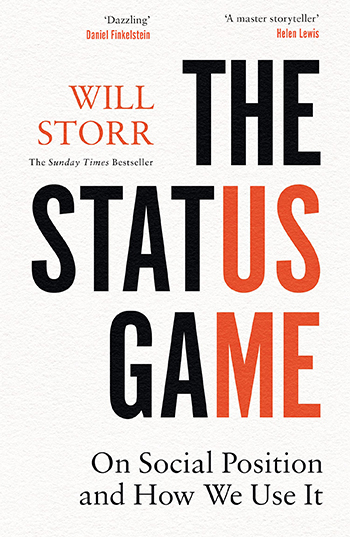
| |||
| 04 Jul 2022 | What It's Like to Spend a Year in Space | 00:44:47 | |
In March of this year, Mark Vande Hei returned to earth after spending 355 days in outer space. Today on the show, I talk to Mark about what it was like to spend nearly a year in orbit, and how he ended up setting a new record for the longest spaceflight by an American astronaut. We first talk about how Mark went from being a soldier in the Army who served twice in Iraq, to working for NASA. Mark explains the application process for becoming an astronaut and what he thought were the hardest parts of his training. He then shares how you exercise in space, what a typical work day on the International Space Station is like, and how it feels to do a space walk. I ask Mark whether he was worried when the Russians threatened to abandon him in space, whether life on the space station is hard on morale, what it's like physically to return to earth, and whether there's a letdown when it's time to hang up your astronaut pack. Resources Related to the Podcast
Connect With Mark Vande HeiListen to the Podcast! (And don’t forget to leave us a review!)     Listen to the episode on a separate page. Subscribe to the podcast in the media player of your choice. Listen ad-free on Stitcher Premium; get a free month when you use code "manliness" at checkout. Podcast SponsorsClick here to see a full list of our podcast sponsors. Transcript Coming Soon | |||
| 01 Sep 2021 | College — What It Was, Is, and Should Be | 00:46:35 | |
Modern students are apt to see going to college as the way to earn a credential that will help them get a good job. But as Andrew Delbanco, Professor of American Studies at Columbia University, argues in his book College: What It Was, Is, and Should Be, higher education was developed for a different purpose — one it should fight to maintain.
| |||
| 14 Oct 2020 | #652: Chefs' Secrets for Organizing Your Life | 00:49:37 | |
The kitchen of a busy restaurant can be a chaotic, frenetic environment. But the best chefs create a kind of personal eye in this storm, from which they can efficiently craft meal after meal without ever moving their feet. The system they use to do this is called mise-en-place -- a French word that means "to put in place," and signifies an entire lifestyle of readiness and engagement. Get the show notes at aom.is/workclean. | |||
| 15 Mar 2021 | The Two Halves of the Warrior's Life | 00:40:04 | |
The Roman army hires a former legionnaire to hunt down a courier and intercept a letter he is carrying from the apostle Paul. But when this mercenary overtakes the courier, something happens that neither he nor the empire could have predicted. This is the plot of the latest novel from writer Steven Pressfield, entitled A Man at Arms. Pressfield is the author of numerous works of both fiction, including Gates of Fire and Tides of War, and non-fiction, including The War of Art and The Warrior Ethos. On today's show, Steven explains why he decided to return to writing a novel set in the ancient world after a 13-year hiatus from doing so, and why he chose to center it around one of Paul's epistles and the threat the Roman empire perceived in the growing movement of Christianity. We discuss how the protagonist of A Man at Arms, Telamon, embodies the archetype of the warrior and a philosophy of "dust and strife," and yet has exhausted the archetype and is ready to integrate something else into it -- a philosophy of love. Steven explains how the journey Telamon is on applies to all artists, entrepreneurs, and individuals, and the transition we all must make from the first half of life in which we're discovering our gifts and honing our skills, to the second half of life, in which we figure out what those gifts and skills are for. Get the show notes at aom.is/manatarms. | |||
| 13 Nov 2023 | The Lesser-Known Philosophy of the Iron Age Greeks | 00:45:12 | |
When we think of Western philosophers who pondered questions about the good life, we typically think of the classical era of Greece and the likes of Plato, Socrates, and Aristotle. But my guest would say that the poets and philosophers who came out of the preceding period, Greece's Iron Age, also have something to say about the nature of existence. Adam Nicolson is the author of How to Be: Life Lessons from the Early Greeks. Today on the show, Adam takes us on a tour of Iron Age Greece and how these seafaring people set the stage for our modern sense of self. Adam makes the case that the early Greeks had what he calls a "harbor mindset," which lent them a mentality centered on fluidity and transience. We discuss how Odysseus exemplifies this harbor mindset, and how a group of lesser-known pre-Socratic philosophers defined life through a lens of change and contradiction. Adam then explains how a mystical guru named Pythagoras paved the way for Greek thinkers like Plato and Aristotle and the rise of cooperative civility. Resources Related to the Podcast
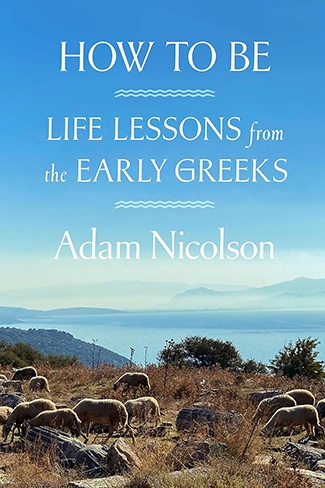
| |||
| 17 Jan 2024 | Come Alive Again by Having More Fun | 00:49:40 | |
Reflect on something for a second: when was the last time you had fun? Are you having trouble remembering, and if you think about it, is it actually kind of hard to even describe what fun is, even? Don’t worry, if you feel like fun’s gone missing from your life, and are feeling a little dead inside as a result, Catherine Price and I are here to offer you a fun-tervention. Catherine is the author of The Power of Fun: How to Feel Alive Again, and today on the show we discuss the three elements of true fun and how it differs from fake fun, how to conduct a fun audit so you can identify your personal fun magnets, how to get a greater kick out of your life, and why you really need to have a Ferris Bueller day. Resources Related to the Podcast
Connect with Catherine Price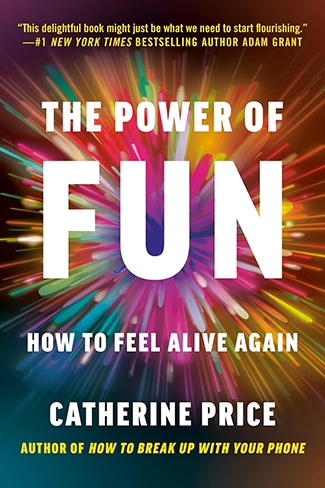
| |||
| 25 Mar 2025 | The Art of Exploration — Why We Seek New Challenges and Search Out the Unknown | 00:54:17 | |
The human urge to explore has taken us to every corner of the planet. From the highest peaks to far-flung islands to even the deepest dimensions of an idea, our species has an innate drive to venture into the unknown. But what exactly drives this need to explore? Is it genetic, cognitive, or something else entirely? Here to unpack this question is Alex Hutchinson, author of The Explorers Gene: Why We Seek Big Challenges, New Flavors, and the Blank Spots on the Map. Today on the show, Alex shares the fascinating science behind our exploratory tendencies, from the dopamine-driven "explorer's gene" that varies across populations to the universal cognitive frameworks that govern how we navigate both physical and mental landscapes. He explains the delicate balance between exploring new possibilities and exploiting what we already know, and why we sometimes find meaning in difficult challenges. We also discuss why younger people explore more than older people do, how this decline in exploration doesn't have to be inevitable, and how to keep exploring throughout your entire life. Resources Related to the Podcast
Connect With Alex Hutchinson | |||
| 18 Aug 2021 | What a Man With 60,000 Books Can Teach You About Lifelong Learning and Building Your Home Library | 00:50:37 | |
Gary Hoover loves books. Among the nine companies he founded was the bookstore chain Bookstop, which was acquired by Barnes & Noble. He has a personal collection of 60,000 books, which he had to purchase an abandoned medical center to house. And he's the author of his own book, which is about books, called The Lifetime Learner's Guide to Reading and Learning.
Check out the show notes at aom.is/hoover | |||
| 09 Feb 2022 | Becoming a Hybrid Athlete | 00:48:06 | |
When it comes to fitness, people tend to either focus on endurance or strength; they're runners or powerlifters. But wouldn't it be pretty cool to be able to deadlift 500 pounds and run a marathon? My guest says that combining real strength with true endurance to become a "hybrid athlete" isn't only possible, it also makes for a wonderfully adventurous and fulfilling path to pursue. His name is Fergus Crawley and he's the co-founder of Omnia Performance, which offers coaching to hybrid athletes. Today on the show, Fergus shares how he found his way into hybrid training, what a struggle with depression had to do with that journey, and why he decided to take on some incredible challenges that combine strength and endurance, including deadlifting 500 lbs, running a sub-5-minute mile and doing a marathon in a single day, and powerlifting 1200 kilos and doing a sub-12-hour Ironman Triathlon in a single day. We then turn to the technical side of programming hybrid training, and how you incorporate both endurance and strength workouts in a single week. We end our conversation with Fergus' case for the benefits of hybrid training to body, mind, and spirit, which made me want to go out for a run — something I don't say every day. Resources Related to the Podcast
Connect With Fergus Crawley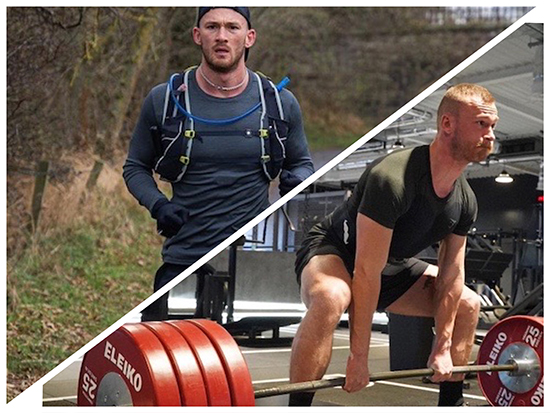
| |||
| 17 Nov 2021 | How to Achieve Cognitive Dominance | 00:41:44 | |
When it comes to high-stakes endeavors, few are as fraught as brain surgery. One false move and you can forever alter someone's life. That's why my guest has spent his life studying how to master fear and enhance performance, and gained insights that can help anyone do likewise in every area of their life. His name is Dr. Mark McLaughlin, and he's a wrestling coach, a lecturer at West Point, and a practicing neurosurgeon, as well as the author of Cognitive Dominance: A Brain Surgeon's Quest to Out-Think Fear. Today on the show, Mark and I discuss how fear manifests itself in a range from mild discomfort to full-blown paralysis, and how you can get a handle on it by developing cognitive dominance. Mark then unpacks what cognitive dominance is, and how it involves being able to overcome our visceral reaction to unexpected events, and respond to elements outside our control with poise and composure. We then talk about how to gain that kind of composure by breaking things down into objects (things that exist independently of us, with features everyone can agree on) and subjects (things that are specific to you, and encompass the sphere within which you can personally act). Mark walks us through how the objective and subjective can form an x- and y-axis, and how you can map the things that happen to you into the four quadrants they form in order to figure out how to respond. We end our conversation with how to deal with known unknowns by making a two-column list of who you do and don’t want to be, and focusing on the former. Resources Related to the Podcast
Connect With Mark McLaughlin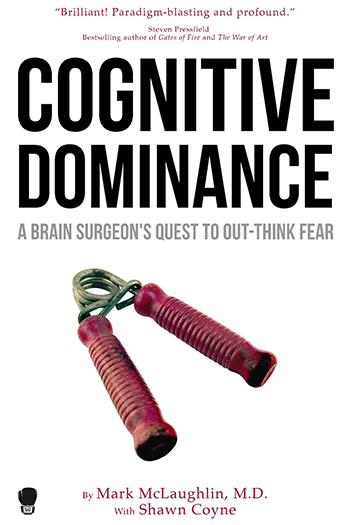
| |||
| 20 Dec 2023 | Duty, Honor, and the Unlikely Heroes Who Helped Win the Battle of the Bulge | 00:48:21 | |
The Battle of the Bulge commenced on the morning of December 16, 1944. The Allies were ill-prepared for this last, desperate offensive from the Germans, and the campaign might have succeeded if a few things hadn’t gotten in their way, including a single, green, 18-man platoon who refused to give up their ground to the Nazis. Alex Kershaw shares the story of these men in his book, The Longest Winter, and with us today on the show. He first explains the background of the Battle of the Bulge and how an Intelligence and Reconnaissance unit that had never seen combat ended up in the thick of it. And he describes the platoon’s 20-year-old leader, Lyle Bouk, who was determined to carry out his orders and hold their position despite being massively outmanned and outgunned, and how his men fought until they were down to their last rounds. Alex then shares how what Bouk thought was a total failure — being captured as POWs after just a day of combat — turned out to have been an effort that significantly influenced the outcome of the Battle of the Bulge, and how an unlikely platoon of heroes who initially went unrecognized for their valor became the most decorated American platoon of WWII. You’ll find such an inspiring lesson in this show about living up to your duty and holding the line. Resources Related to the Podcast
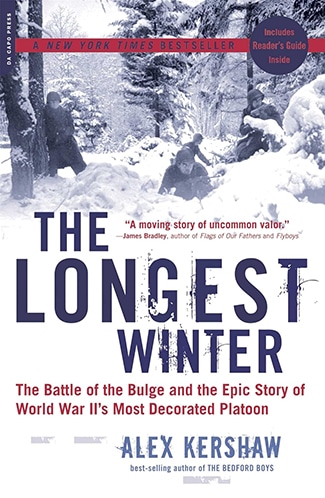
| |||
| 16 Oct 2024 | Money CAN Buy Happiness (If You Use It In These Ways) | 00:47:38 | |
Money can't buy happiness. It sounds good as a bumper sticker platitude. But the truth is, money can buy happiness. At least sometimes. In certain circumstances. If we view it and use it in the right ways. Here to unpack the conditions under which money can buy happiness and facilitate our flourishing is Dr. Daniel Crosby, a psychologist and behavioral finance expert and the author of The Soul of Wealth: 50 Reflections on Money and Meaning. Today on the show, Daniel shares the minimum income level at which money buys happiness, at least in the sense of avoiding pain. We talk about how to purchase material things in a way that increases happiness, while avoiding materialism, and the value of using your money to buy health and freedom. And we discuss the importance of finding an overarching why that guides the way you allocate your money and doing a values audit to see if your purpose and spending habits are aligned. Resources Related to the Podcast
Connect With Daniel Crosby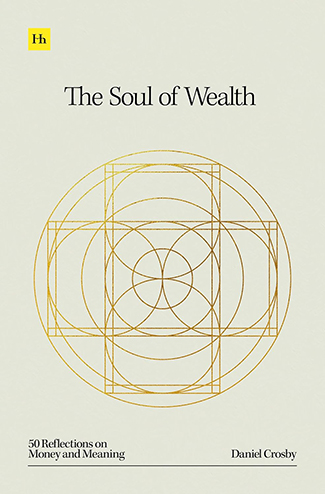
| |||
| 22 Feb 2023 | Throw a 2-Hour Cocktail Party That Can Change Your Life | 01:03:35 | |
When Nick Gray moved to New York City, he was a shy introvert with few friends. But he wanted to build up his social network. So he started throwing cocktail parties to meet people. These parties changed his life, and he thinks they can change yours, too. Nick knows what you're thinking: you don't throw parties, and hosting them is simply not for you. But, he would encourage you not to tune out. He's got a great case for why you should give this idea a try, and just as he does in his book — The 2-Hour Cocktail Party: How to Build Big Relationships with Small Gatherings — Nick is going to lay out exactly how to throw a party that's low stakes and low effort, but will be highly successful in helping you build all kinds of connections. Today on the show, Nick shares what he's learned from throwing hundreds of parties and refining his hosting technique to a T. He explains why cocktail parties are better than dinner parties (and don't have to involve actual cocktails), the best night of the week to throw a party, why the party should only be two hours long and have a firm end time, how many people to invite, and who to invite when you don't yet have any friends. And he explains why he's a big fan of two things you might be hesitant about — name tags and icebreakers — and why two of his favorite things to include in a party are grapes and a harmonica. Resources Related to the Episode
Connect With Nick Gray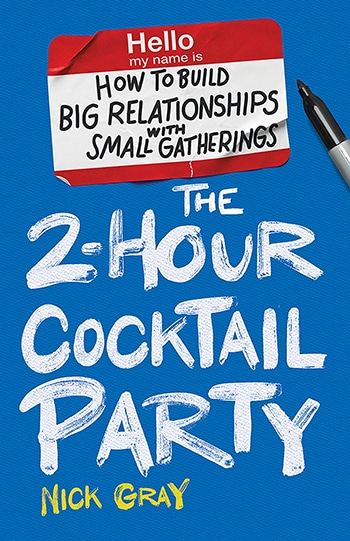
| |||
| 17 Mar 2022 | The Writing Life of Ernest Hemingway | 00:50:10 | |
How did one of history's greatest writers — Ernest Hemingway — get going with his craft, develop his indelible style, and infuse his narratives with memorable life and compelling tension? Today we delve into the answers to those questions with Hemingway scholar Mark Cirino, who is a professor of English, the editor and author of half a dozen books on Hemingway — including Ernest Hemingway: Thought in Action — and the host of the One True Podcast which covers all things related to Papa. Mark and I our begin our conversation with how Hemingway cut his teeth with writing as a journalist, how the "iceberg theory" underlay his approach to writing as a novelist, and how his years in Paris — and the books, people, and art he encountered there — influenced his work and the trajectory of his career. We then discuss how his travel and recreational pastimes allowed him to write with a vivid firsthand understanding of certain places and pursuits, what his writing routine was like, and how the characters in his novels explore the tension between thought and action. We end our conversation with Mark's recommendation for where to start reading Hemingway if you've never read him or haven't read him in a long time, and what Mark thinks was Hemingway's "one true sentence." Resources Related to the Podcast
Connect With Mark Cirino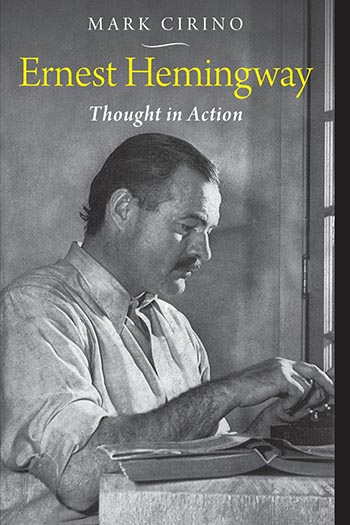
| |||
| 01 Jun 2020 | #615: How to Develop Authentic Gravitas | 00:49:53 | |
When it comes to how you're perceived in your professional life, it's likely you want to be taken seriously. You want your words to carry weight. You want to be influential and listened to, regardless of your position in a company. You want to carry yourself with gravitas. Get the show notes at aom.is/gravitas. | |||
| 25 Aug 2021 | The Conquering Father Who Made an Empire-Building Son | 00:52:29 | |
If asked to think about the greatest generals of the ancient world, one name is likely to come to mind first: Alexander the Great — the incomparable military commander who amassed the world's largest empire by the time he was but thirty years old. A name that probably won't come to mind, however, is that of Philip the II, Alexander's father.
| |||
| 26 Jun 2024 | The Fascinating Differences Between Male and Female Friendships | 00:50:48 | |
Friendships are a central part of the lives of both men and women. But from personal observation, you've probably noticed that the dynamics of male and female friendships aren't always the same. You may not, however, have been able to articulate what those differences are or have known what's behind them. While there's still a lot of facets of friendship that haven't yet been researched, Dr. Jaimie Krems, who runs UCLA's Social Minds Lab, has a lot of interesting insights about what we do know about how and why men and women approach friendship differently. Today on the show, she explains why men and women form friendships and the differences in the size and nature of their social circles, how long their friendships last, and what they look for in friends. We also discuss why men have a greater tolerance for their friends' flaws than women do, why men and women would want to be friends with each other, and how each sex experiences friendship jealousy. Resources Related to the Podcast
Connect With Jaimie Krems | |||
| 31 Jul 2024 | How to Resist Group Anxiety and Become a Differentiated Self | 00:55:45 | |
When we think about anxiety, we typically think of something that is generated and felt within an individual. But Murray Bowen, a psychiatrist of the mid-20th century, argued that anxiety was also created by the interactions between individuals and could spread like a contagion in a group, an idea known as "Family Systems Theory." Here to offer an introduction to Family Systems Theory and how its implications extend far beyond the family is Steve Cuss, who is a former hospital chaplain, a pastor, the founder of Capable Life, which offers coaching and consultation, and the author of Managing Leadership Anxiety: Yours and Theirs. Today on the show, Steve and I discuss how individuals in both families and organizations can "infect a situation with [their] own assumptions and expectations" and create a sense of anxiety that permeates a group. Steve unpacks the false needs that create chronic anxiety in an individual, how this anxiety spreads to others, and the unhealthy ways people deal with this tension, including becoming fused together. And we talk about how to put this anxiety back where it belongs, and how a single person can change a group dynamic by differentiating from it and becoming a rooted self. Resources Related to the Podcast
Connect With Steve Cuss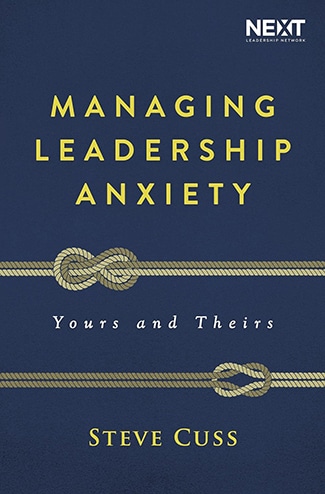
| |||
| 09 Aug 2023 | The Life We're Looking For | 00:56:07 | |
Note: This is a rebroadcast. In the quiet moments of our lives, we can all sense that our hearts long for something, though we often don't know what that something is. We seek an answer in our phones, and while they can provide some sense of extension and fulfillment — a feeling of magic — the use of technology also comes with significant costs in individual development and interpersonal connection that we typically don't fully understand and consider. My guest today will unpack what it is we really yearn for, how technology, when misused, can direct us away from the path to fulfilling those yearnings, and how we can find true human flourishing in a world in which so much works against it. His name is Andy Crouch and he's the author of The Life We're Looking For: Reclaiming Relationship in a Technological World. Today on the show we talk about the tradeoffs you make when you seek magic without mastery, and how we can understand our desires better once we understand ourselves as heart, soul, mind, and strength complexes who want to be loved and known. We discuss the difference between interactions that are personal versus personalized, as well as the difference between devices and instruments, and how to use your phone as the latter instead of the former. We end our conversation with why Andy thinks we need to redesign the architecture of our relational lives and create something he calls "households." Resources Related to the Podcast
Connect With Andy Crouch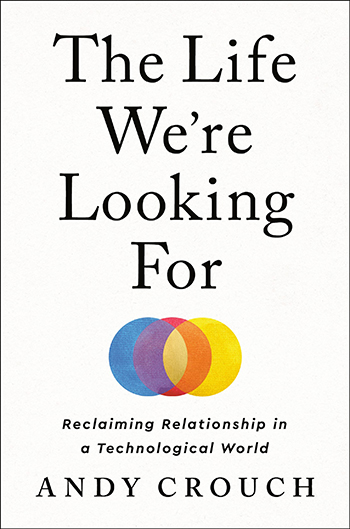
| |||
| 12 Jun 2023 | The Rise and Fall of the Golden Age of Action Heroes | 00:48:20 | |
In 1980s America, gritty streets were filled with crime, the threat of Cold War hovered in the air, and action movies starring tough guy heroes dominated the box office. This was a time in cinema when muscle, martial arts, and the perfect weapon were the keys to saving the day; when the likes of Arnold Schwarzenegger and Sylvester Stallone ruled the silver screen and their on-screen carnage was only rivaled by their off-screen competition. Why did this golden age of action movies emerge when it did, and why don't they make films like that anymore? Here to chart the rise and fall of the golden age of action movies is Nick de Semlyen, author of The Last Action Heroes, The Triumphs, Flops, and Feuds of Hollywood's Kings of Carnage. Today on the show, Nick shares the stories behind the larger-than-life stars of the action genre — including Schwarzenegger, Stallone, Chuck Norris, and Steven Seagal — and the iconic films they starred in. He also discusses why the action genre fell out of favor in the early 90s, why its movies nonetheless continue to endure in popularity, and the three action films he most recommends watching. Connect With Nick de Semlyen
| |||
| 20 Apr 2022 | The Life We’re Looking For | 00:56:00 | |
In the quiet moments of our lives, we can all sense that our hearts long for something, though we often don’t know what that something is. We seek an answer in our phones, and while they can provide some sense of extension and fulfillment — a feeling of magic — the use of technology also comes with significant costs in individual development and interpersonal connection that we typically don’t fully understand and consider. My guest today will unpack what it is we really yearn for, how technology, when misused, can direct us away from the path to fulfilling those yearnings, and how we can find true human flourishing in a world in which so much works against it. His name is Andy Crouch and he’s the author of The Life We’re Looking For: Reclaiming Relationship in a Technological World. Today on the show we talk about the tradeoffs you make when you seek magic without mastery, and how we can understand our desires better once we understand ourselves as heart, soul, mind, and strength complexes who want to be loved and known. We discuss the difference between interactions that are personal versus personalized, as well as the difference between devices and instruments, and how to use your phone as the latter instead of the former. We end our conversation with why Andy thinks we need to redesign the architecture of our relational lives and create something he calls “households.” Resources Related to the Podcast
Connect With Andy Crouch | |||
| 04 Mar 2020 | #590: The Creation of Sherlock Holmes | 00:42:58 | |
Sherlock Holmes is one of the most widely recognized figures of literature and pop culture. But how did the creator of Sherlock Holmes, Sir Arthur Conan Doyle, come up with a character who has become the universal archetype of the independent detective? In his book, Arthur and Sherlock: Conan Doyle and the Creation of Holmes, my guest today explores the biography of the fictional detective by looking at the life of the real-world author. His name is Michael Sims and we begin our conversation with the early life of Conan Doyle and his experience in medical school studying under a renowned diagnostician who helped inspire the character of Sherlock Holmes. Michael then walks us through the cultural world of Victorian England and how it was the perfect environment for a character like Holmes to be birthed. He shows how writers like Charles Dickens and Edgar Allan Poe laid the groundwork for detective fiction, how the Sherlock stories differed from theirs, and how they were initially received. We then delve into the characterization of Holmes and his crime solving methodology, before ending our conversation discussing Conan Doyle's intense interest in spiritualism and why Holmes is such a captivating figure even in the 21st century. Get the show notes at aom.is/sherlock. | |||
| 02 Nov 2022 | Bo Jackson, The Last Folk Hero | 00:50:41 | |
In the 80s and 90s, few sports stars loomed as large as Bo Jackson. A Kansas City Royal and an Oakland Raider, he was the rare athlete to play two professional sports. His strength and power seemed supernatural. He soared into end zones, ran the 40-yard dash in 4.13 seconds, hit meteoric home runs, and broke baseball bats over his head for fun. And those were just his documented exploits. Because Bo played in an era before smartphones, stories circulated — that could never be entirely proven or disproven — that he was capable of even more impressive feats. The guy was the stuff of legends. For this reason, Jeff Pearlman has entitled his new biography of Bo: The Last Folk Hero. Today on the show, Jeff and I talk about Bo's Paul Bunyan-esque stature, and the real life behind the legend. We discuss both the flaws and the strengths of Bo Jackson, and how natural talent can be both a hindrance and a help, as we trace his life from an impoverished upbringing as one of ten kids, to how he managed to secure an arrangement where he got to play two professional sports. Jeff explains how Bo never liked to practice — because he was so naturally gifted he didn't need to — why Bo didn't take the deal when the Yankees tried to draft him out of high school, the flash-bulb moments he achieved in college and the pros, how a hip injury ended his football days but didn't entirely finish him off for baseball, and why, after such a neon career, Bo has largely disappeared from the public eye. Bo Highlights Mentioned in the Show
Connect With Jeff Pearlman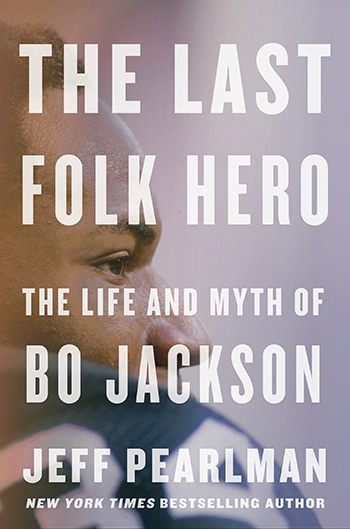
| |||
| 21 Oct 2024 | Lee Child the Writer, Jack Reacher the Character, and the Enduring Appeal of Lone Wolves | 00:47:45 | |
In creating the Jack Reacher character, Lee Child launched a series of books that now boast 100 million copies in print and have been turned into movies and a popular Amazon streaming series. Today on the show, I talk to Lee about what makes Reacher so compelling and much more. We first discuss how Lee didn't get started with writing until he was almost forty, and what prompted him to change careers. We then unpack the Reacher character, discussing the ancient, archetypal roots of this vigilante, drifter detective, what he has in common with the knight errant, and the enduring appeal of the lone wolf. We also talk about Lee's writing process, why midlife is the best time to write, and why, after writing more than two dozen Reacher novels, he's chosen to hand off the series to his brother and fellow writer, Andrew. Resources Related to the Podcast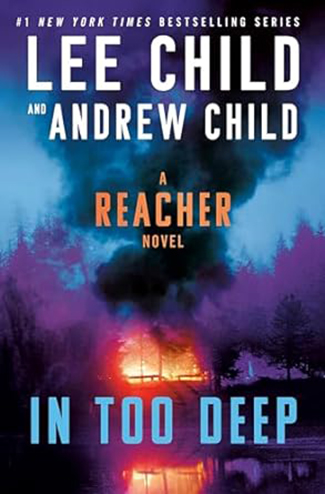 | |||
| 06 May 2024 | Of Strength and Soul — Exploring the Philosophy of Physical Fitness | 00:57:31 | |
When you’re lifting weights, you might be thinking about setting a new PR or doing your curls for the girls. But throughout history, philosophers have thought about physical fitness on a deeper level and considered how exercise shapes not only the body, but also the mind and the soul. My guest today, Joe Lombardo, is a strength enthusiast who follows in this tradition and has explored the philosophy of bodily exercise in his writing. Today on the show, Joe and I discuss several different ways the philosophy of strength has been expressed over time. We begin our conversation with how the ancient Greeks thought of physical training as a way to develop personal as well as social virtues, and why they thought you were an "idiot," in their particular sense of the word, if you didn't take care of your body. We then discuss early Christianity's relationship with physical exercise and the development of the muscular Christianity movement in the 19th century. We end our conversation by looking at the philosophy of physicality espoused by the Japanese writer Yukio Mishima, and what he had to say as to how strength training moves us out of the life of the night and towards the light of the sun. Resources Related to the Podcast
Connect With Joe Lomabrdo | |||
| 16 May 2022 | An Old-School Boxing Trainer on What It Means to Be a Man | 00:55:44 | |
Teddy Atlas was born to a well-respected doctor in a wealthy part of Staten Island. Most kids like him end up going to an Ivy League school to become some sort of white collar professional. Teddy? Teddy dropped out of high school, went to jail, and ended up becoming a trainer to 18 world champion boxers, including heavyweight champion Michael Moore, who defeated Evander Holyfield for the title in 1994. Today on the show I talk to Teddy about how and why he took the path he did in life. Teddy explains how he ended up boxing under legendary trainer Cus D'Amato, and how Cus guided Teddy towards becoming a trainer himself. Teddy then shares stories of training kids in the Catskills, taking them to unsanctioned amateur fights in the Bronx, and the lessons he learned from boxing and his father about personal responsibility, managing fear, overcoming resistance, and what it means to be a man. Resources/People/Articles Mentioned in Podcast
| |||
| 25 Sep 2023 | Can You Trust Happiness Studies? | 00:41:16 | |
How to be happier is a topic covered in countless books, blogs, and podcasts. Consume enough of this content and you repeatedly come across the same recommendations that have purportedly been proven to increase happiness: exercise, spend time in nature, meditate, socialize, and practice gratitude. But is there actual scientific evidence that these strategies work? Today on the show, we'll find out what professor of social psychology Elizabeth Dunn discovered when she did a study of happiness studies, and what the surprising findings have to do with the "replication crisis" that's occurred in science. In the second half of our conversation, Elizabeth shares the takeaways of a few well-vetted happiness studies she's done herself, including how to spend your money and use technology to increase happiness. And we discuss how to apply these findings, and the findings of all happiness studies, in a wise way that takes into account your unique personality and peculiarities. After the show is over, check out the show notes at aom.is/happinessstudies Resources Related
Connect With Elizabeth Dunn | |||
| 21 Sep 2022 | Data-Backed Answers to Personal Finance Controversies | 00:46:16 | |
Dip your toes into the world of personal finance and you can find plenty of questions which are the subject of endless debate. How much of your income should you save? Is it okay to take on debt? Which is better — renting a home or owning one? When it comes to the stock market, should you buy the dip? On his blog, Of Dollars and Data, my guest cuts through the personal finance noise by finding answers based on numbers rather than conjecture, and then converting this research into advice the average person can understand. His name is Nick Maggiulli, and he's the Chief Operating Officer and Data Scientist at Ritholtz Wealth Management, as well as the author of Just Keep Buying: Proven Ways to Save Money and Build Your Wealth. Today on the show, Nick explains what the data says about how you should approach the questions I've already mentioned. He also shares how to spend your money without feeling guilty by using the "2X Rule," the three criteria you should meet before you consider buying a home, the best way to approach the idea of "dollar cost averaging," and more. We end our conversation with the right mindset to adopt in our volatile economy. Resources Related to the Podcast
Connect With Nick Maggiulli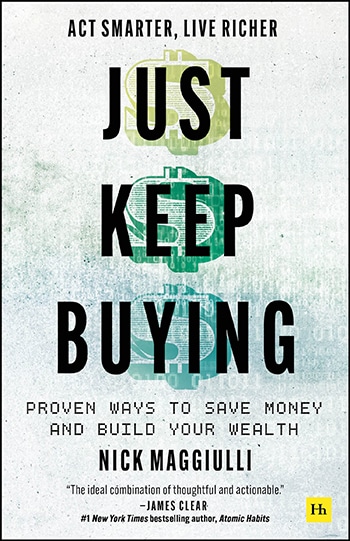
| |||
| 01 Mar 2021 | Protection for and from Humanity | 00:56:50 | |
When celebrities, dignitaries, and executives go out and about and travel around the world, they're often surrounded by bodyguards whose job it is to protect them and their loved ones. My guest today offers a look at what's involved in offering these professional protective services for VIPs, and how average citizens can apply the same principles to protect themselves and their families. His name is Todd Fox, he has an extensive military and law enforcement background, and he's the founder of Close Protection Corps and the author of Protection for & from Humanity. Todd and I discuss why the soft skills around mindset constitute the foundation of personal protection, and the prep work that's necessary to keep both VIPs and normal folks safe, including the process of "advancing" and a system from the Vietnam era you can use to make yourself a "hard target." We then discuss what you can learn from the Marine Combat Hunter program, the Cooper Color Code, and the OODA Loop to develop better situational awareness. We end our conversation with the hard skills you should learn to protect yourself, and the order you should learn them in. Get the show notes at aom.is/protection. | |||
| 05 May 2021 | The (Non-Cliche) Life Lessons of Fly Fishing | 00:47:46 | |
Fishing has long lent itself to imparting philosophical parallels and metaphorical life lessons. But these homespun platitudes can, to be honest, tend to get a little timeworn and cliche. My guest today breathes new life into what fishing, specifically fly fishing, has to teach anglers and non-anglers alike, while also giving us a look inside the skill, fun, and sensibilities of this sport. His name is David Coggins, and he's a travel and style writer, as well as the author of The Optimist: A Case for the Fly Fishing Life. David and I discuss the different types of fly fishing that exist, and what they say about your personality, stage in life, and how we all choose the way we're going to do something. We then discuss the way that pursuits like fly fishing are not just about their mechanics, but the experience as a whole, which includes things like eating hash browns at a diner in Montana. We talk about the importance of mentors, and David's experience with two old guys who showed him the fly fishing ropes. We then get into why men love getting ready for something as much as actually doing it, before delving into the tension between wanting to nab a fish, and being okay when you don't, and how part of growing up is learning how to care, but not care. We end our conversation with the best route for getting into the fly fishing life, and how you can get started in a way that's both affordable and close to home. Get the show notes at aom.is/flyfish. | |||